Getting Started with Metriqus
Seamless Analytics for Mobile Games
Metriqus is a data analytics platform tailored for mobile game studios. With deep integrations into app stores, ad networks, and in-game events via SDKs, Metriqus empowers studios to make data-driven marketing and monetization decisions.
- Platform: Metriqus Analytics
- Category: AI-Powered Mobile Game Analytics Platform
- Current Version: 1.0
- Supported Platforms: iOS, Android, Unity
- Integrations: App Store, Google Play, Google Ads, Meta Ads, TikTok Ads, Unity SDK, AppLovin, AdMob
If you need any assistance during the setup process, feel free to contact us at [email protected].
Installation Overview
Metriqus is a cloud-based platform that connects your mobile game data sources through a single interface. To get started, follow the integration steps below:
- App Store: Retrieve API key, Issuer ID, Key ID, Vendor ID, and Bundle ID via App Store Connect.
- Google Play: Create and authorize a service account, download the JSON key, and provide the Package Name and Cloud Storage URI.
- Ad Networks: Connect ad channels such as Google Ads, TikTok Ads, Meta Ads, and AppLovin using secure API or report keys.
- Unity SDK: Install the SDK via Git URL or Unity Package and configure prefab and tracking settings in your game scenes.
Data Collection
Metriqus unifies your marketing and gameplay data into a cohesive analytics layer. Data is structured by source as follows:
- Store Data: Revenue, downloads, region-based performance from App Store and Google Play
- Ad Spend: Daily cost, impressions, clicks, installs from ad network integrations
- SDK Events: Level starts/completions, purchases, user attributes from Unity SDK
- Campaign Insights: Cross-channel ROAS, LTV, and retention analytics by user cohort
All data sources are normalized automatically and refreshed daily (or in real-time via SDK).
App Store Integration
Follow the steps below to setup your site template:1. Generate API Key
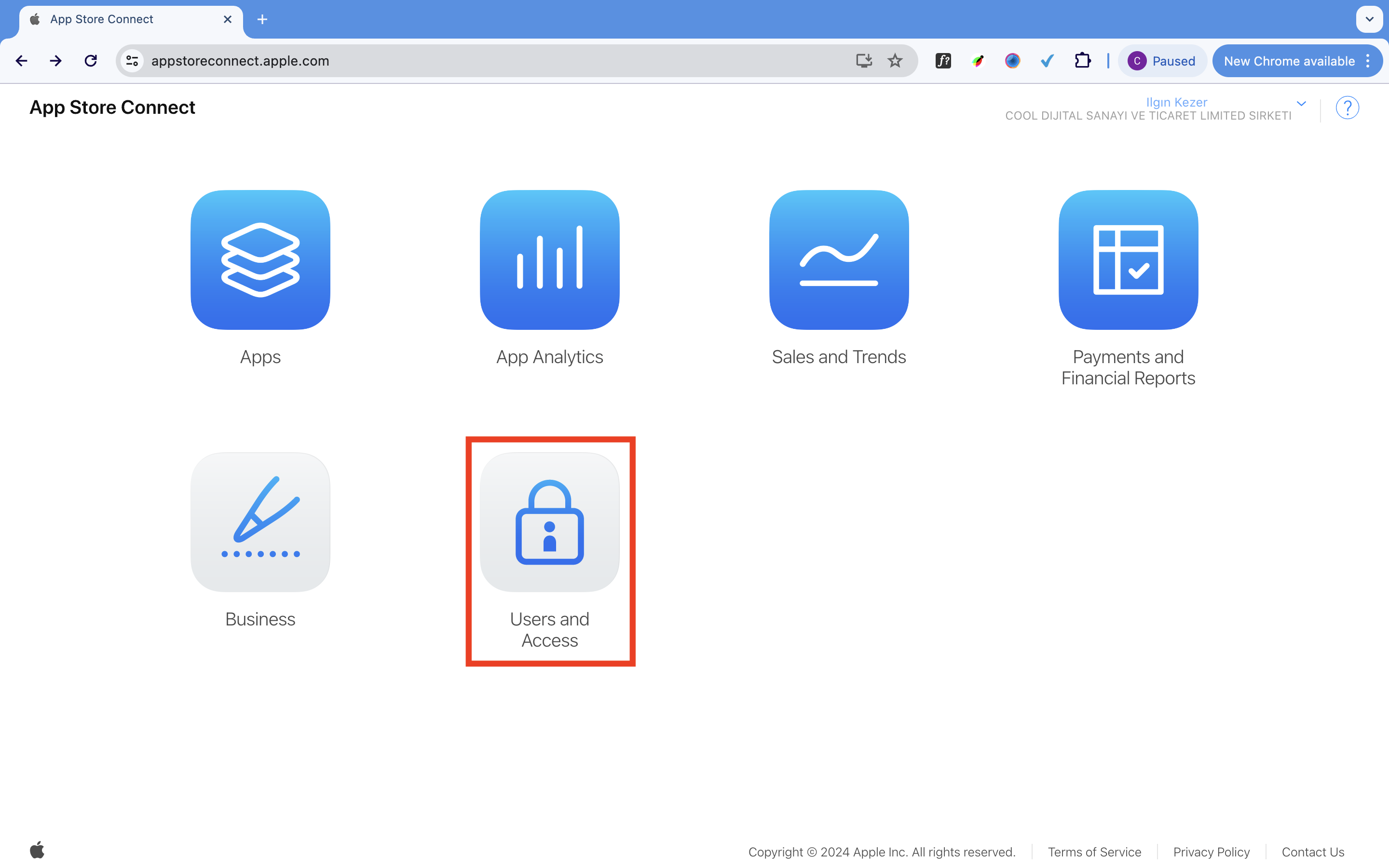
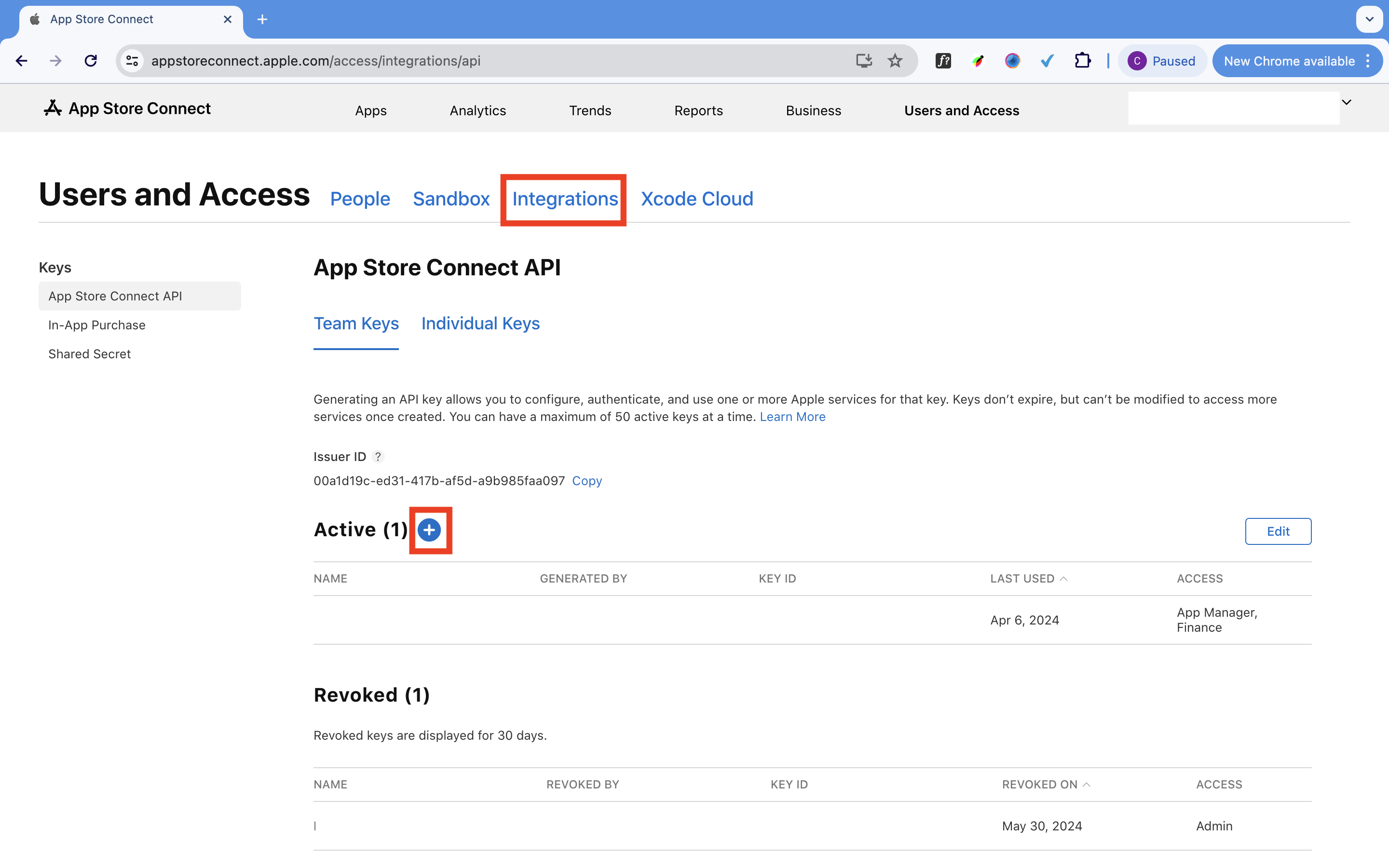
•Enter a name such as “Metriqus Integration Key”.
•Assign the role: “Sales & Reports”.
•Click the “Generate” button to create the key.
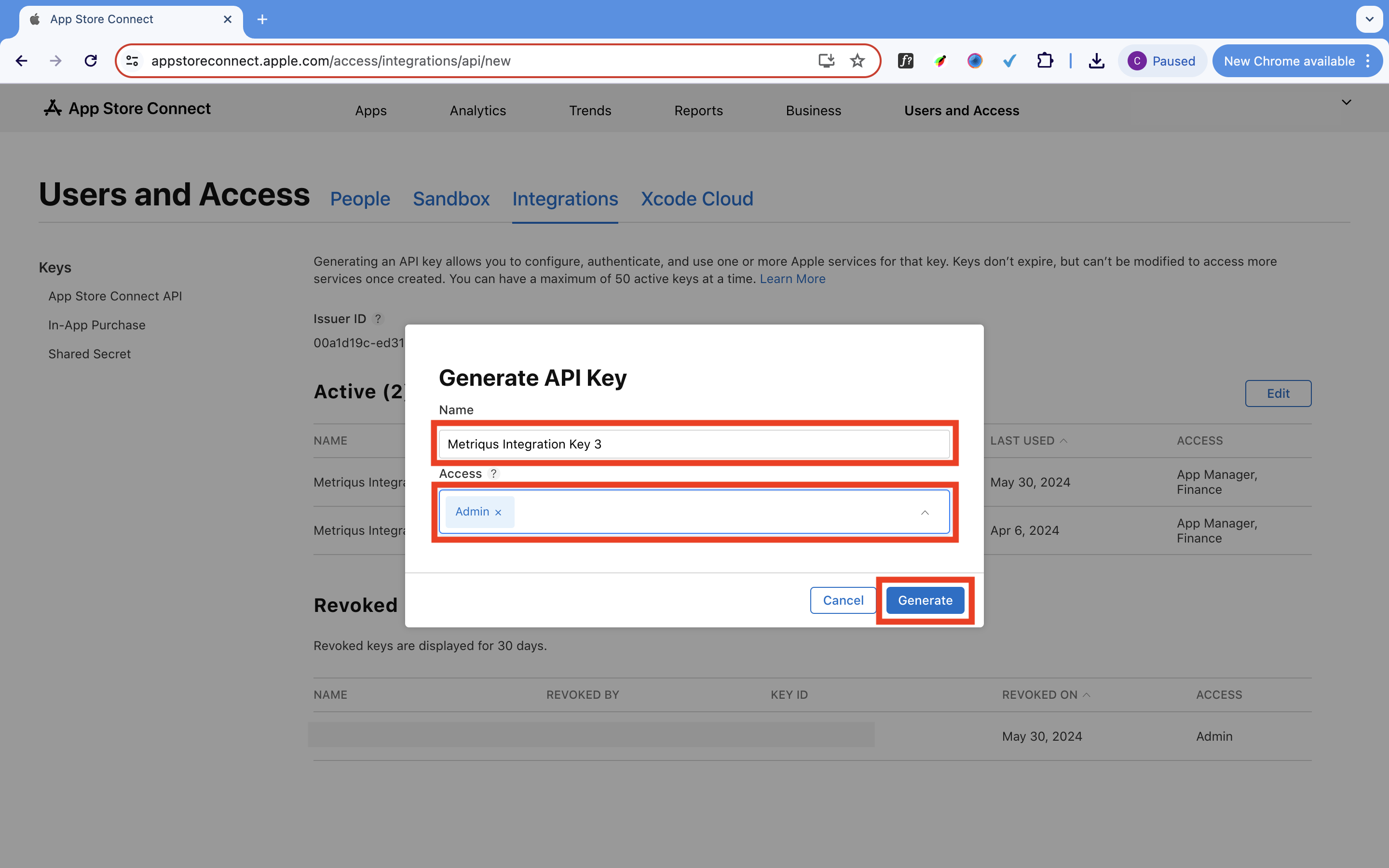
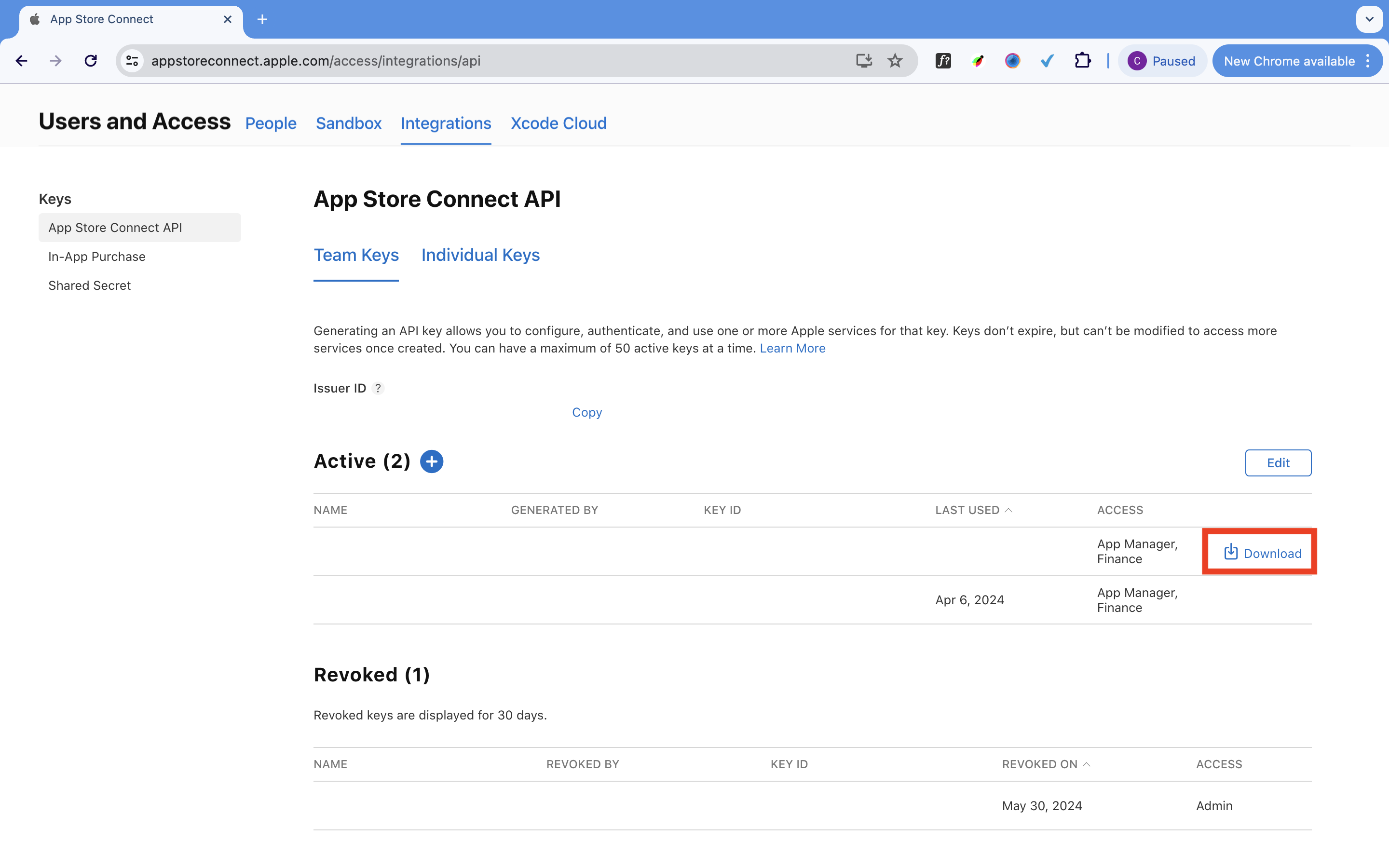
2. Get Issuer ID & Key ID
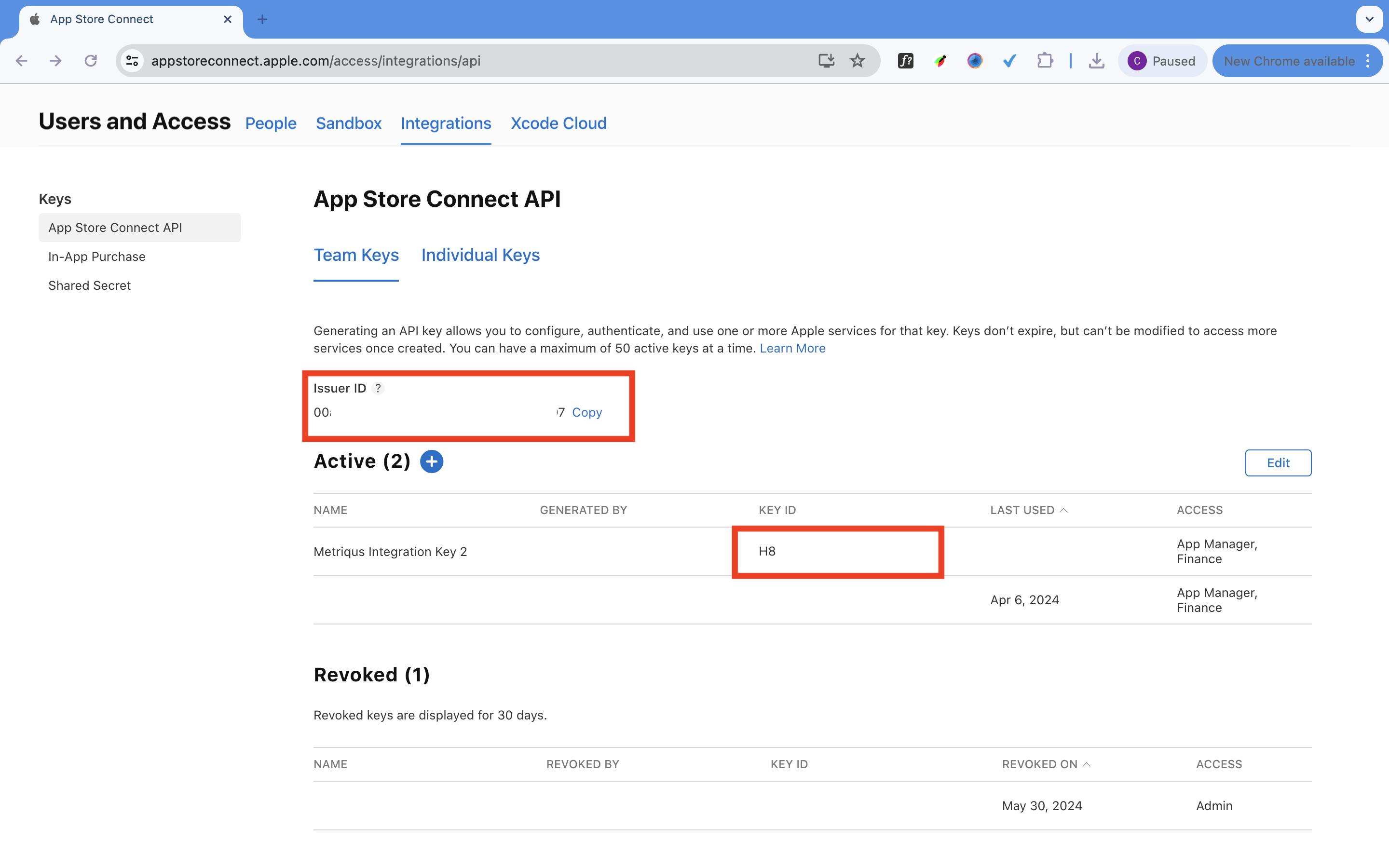
3. Get Bundle ID
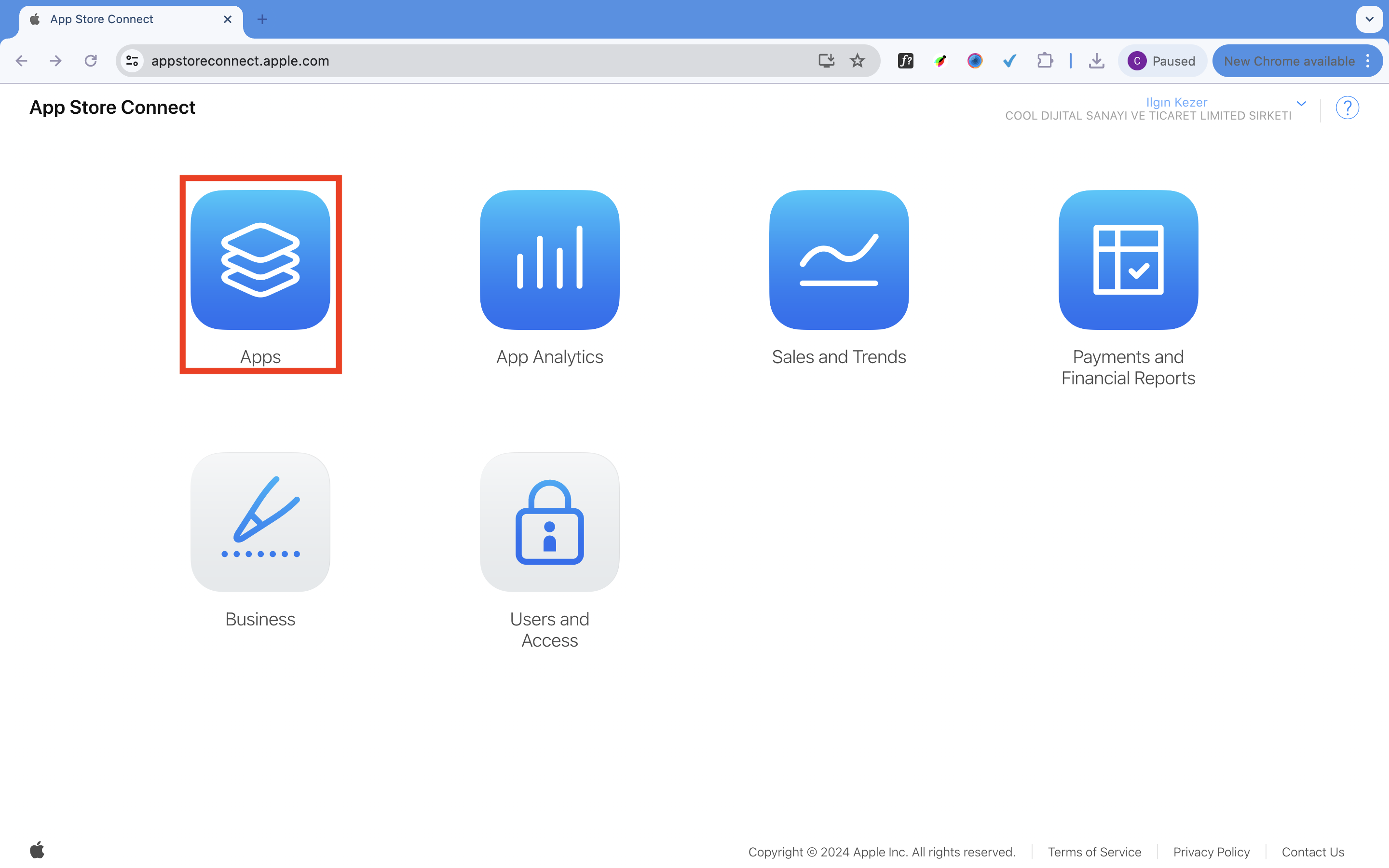
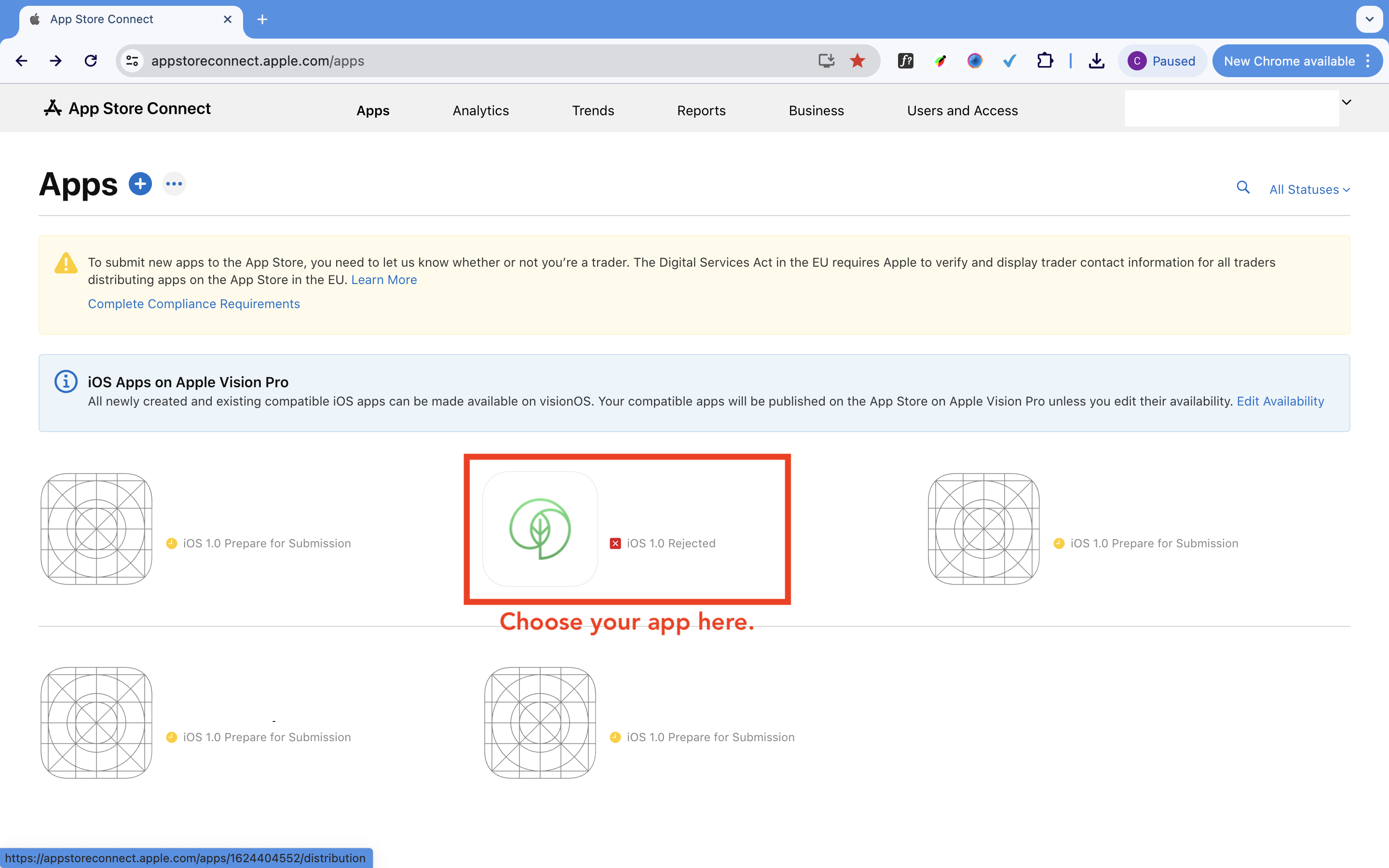
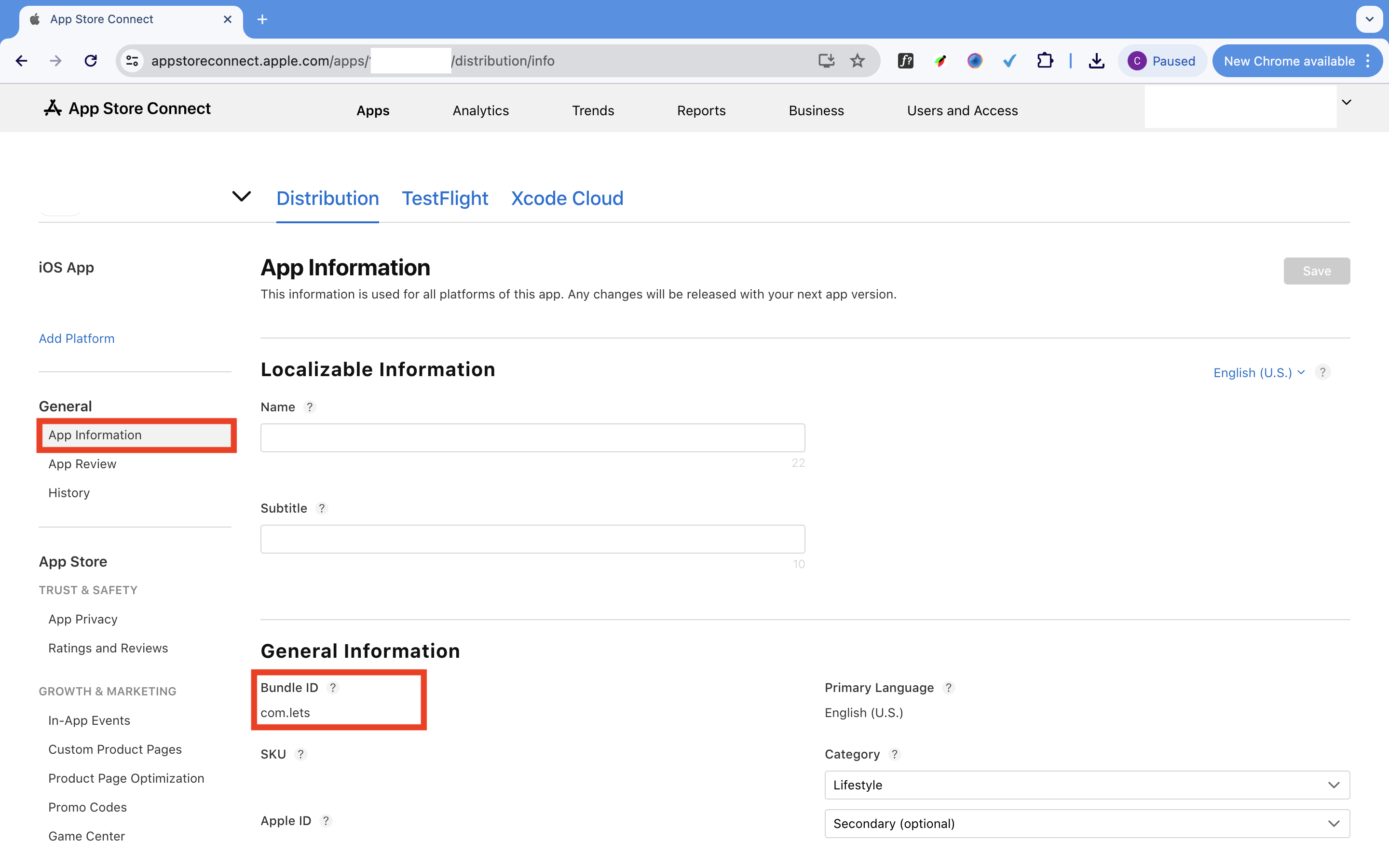
4. Get Vendor ID
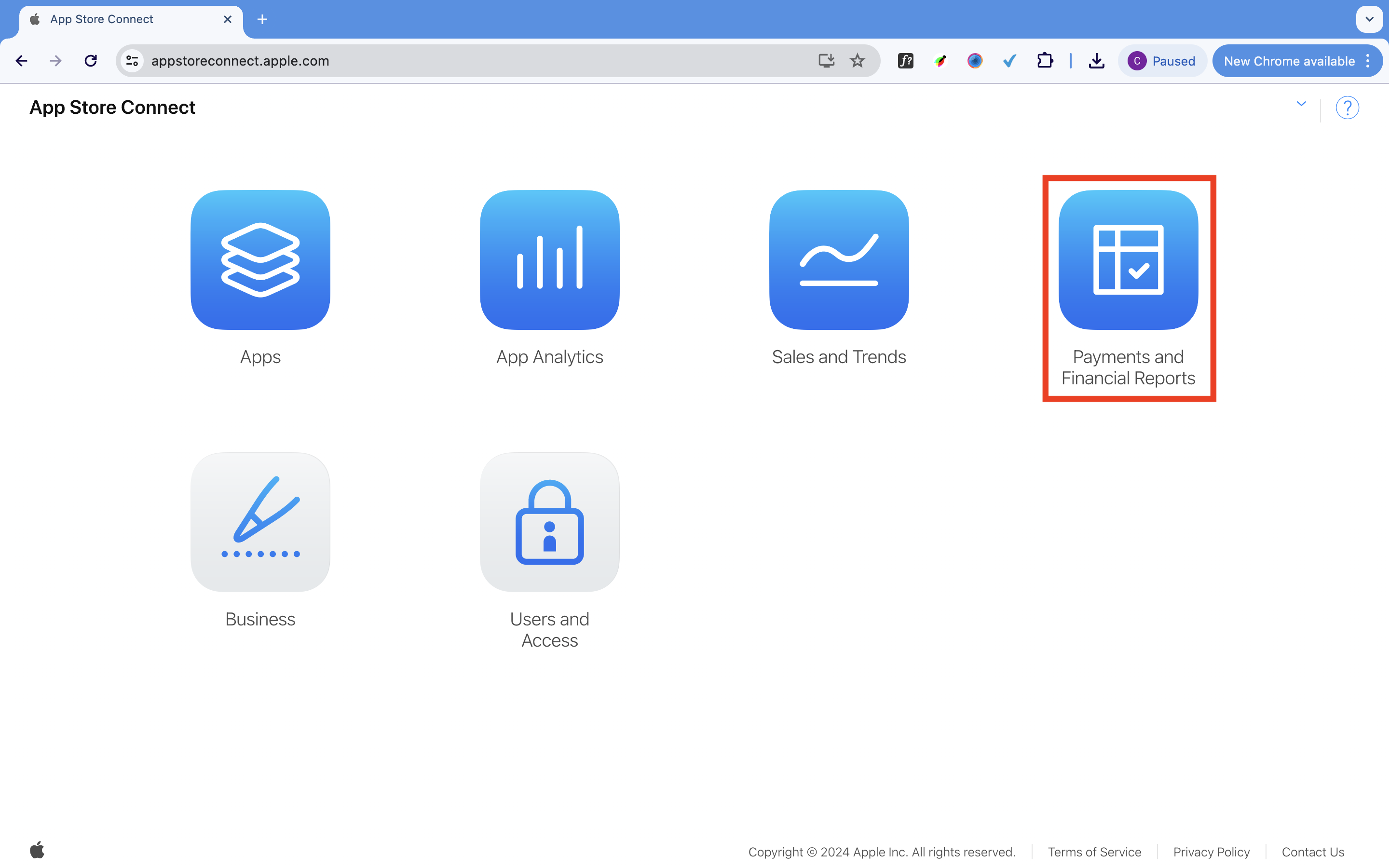
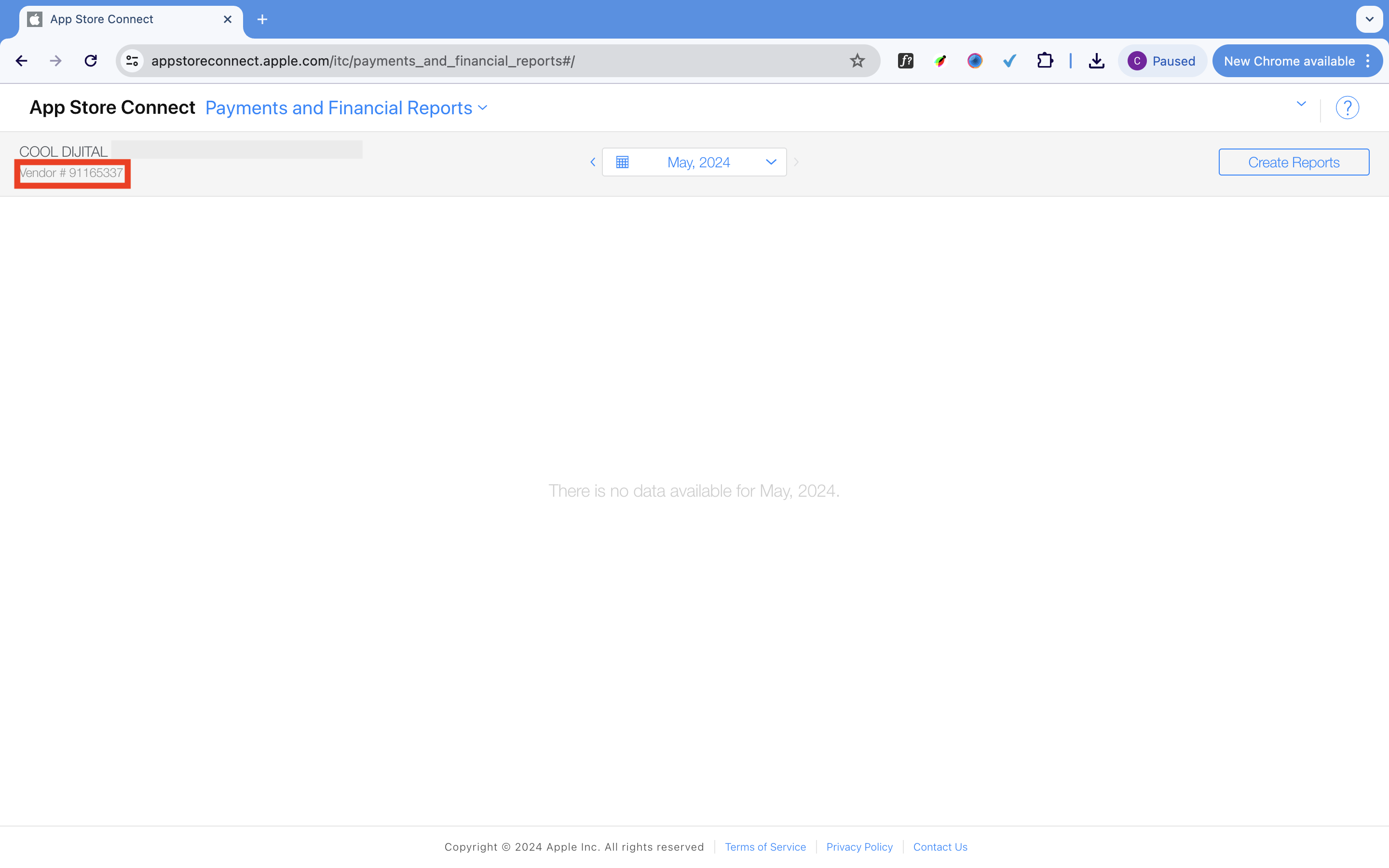
Google Play Integration
Follow these steps to connect your Google Play Console to Metriqus and start tracking revenue and user metrics.
1. Create Service Account
- Log in to Google Cloud Console
- From the left-hand menu, click on “IAM & Admin”.
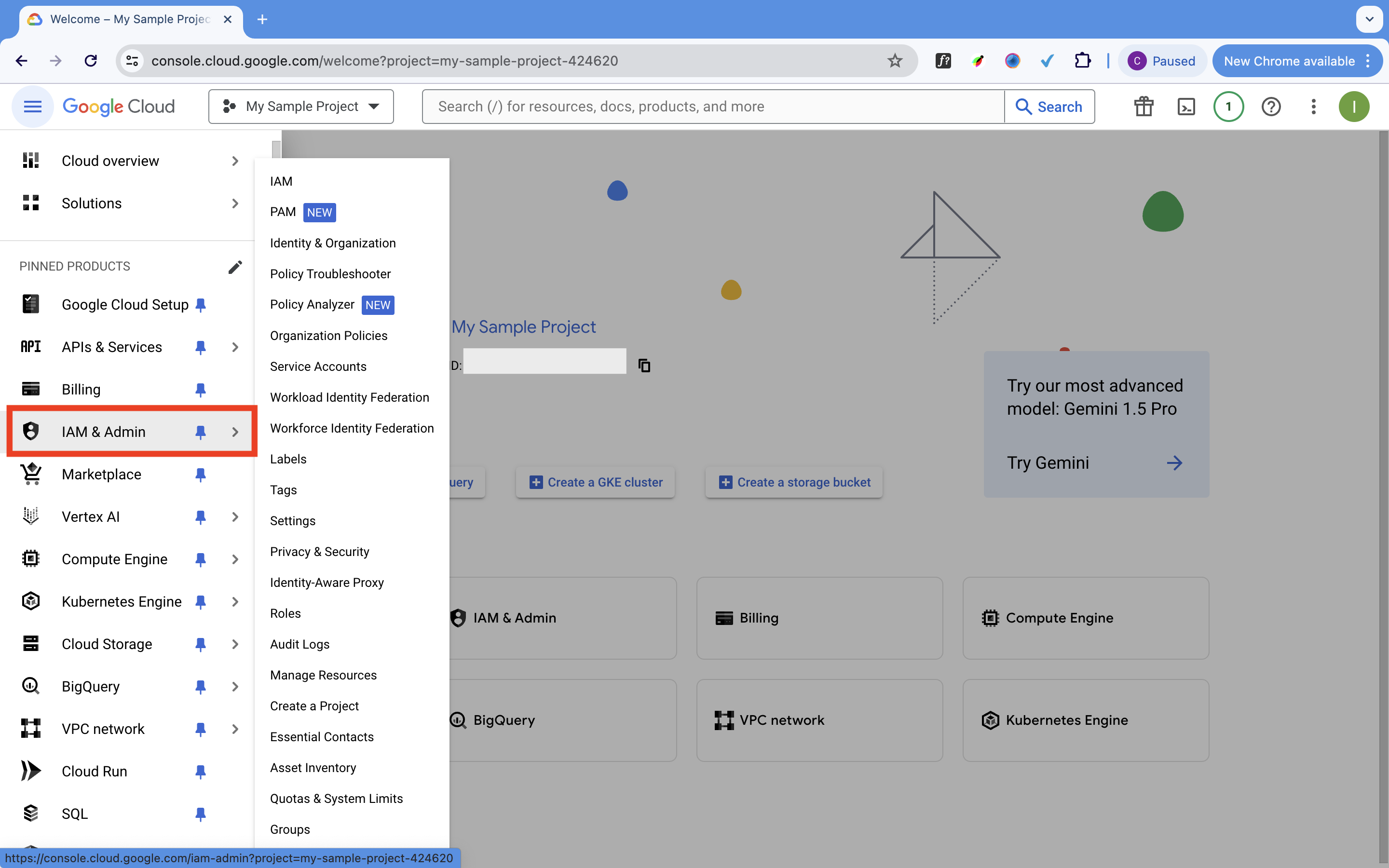
- Select your organization from the dropdown.
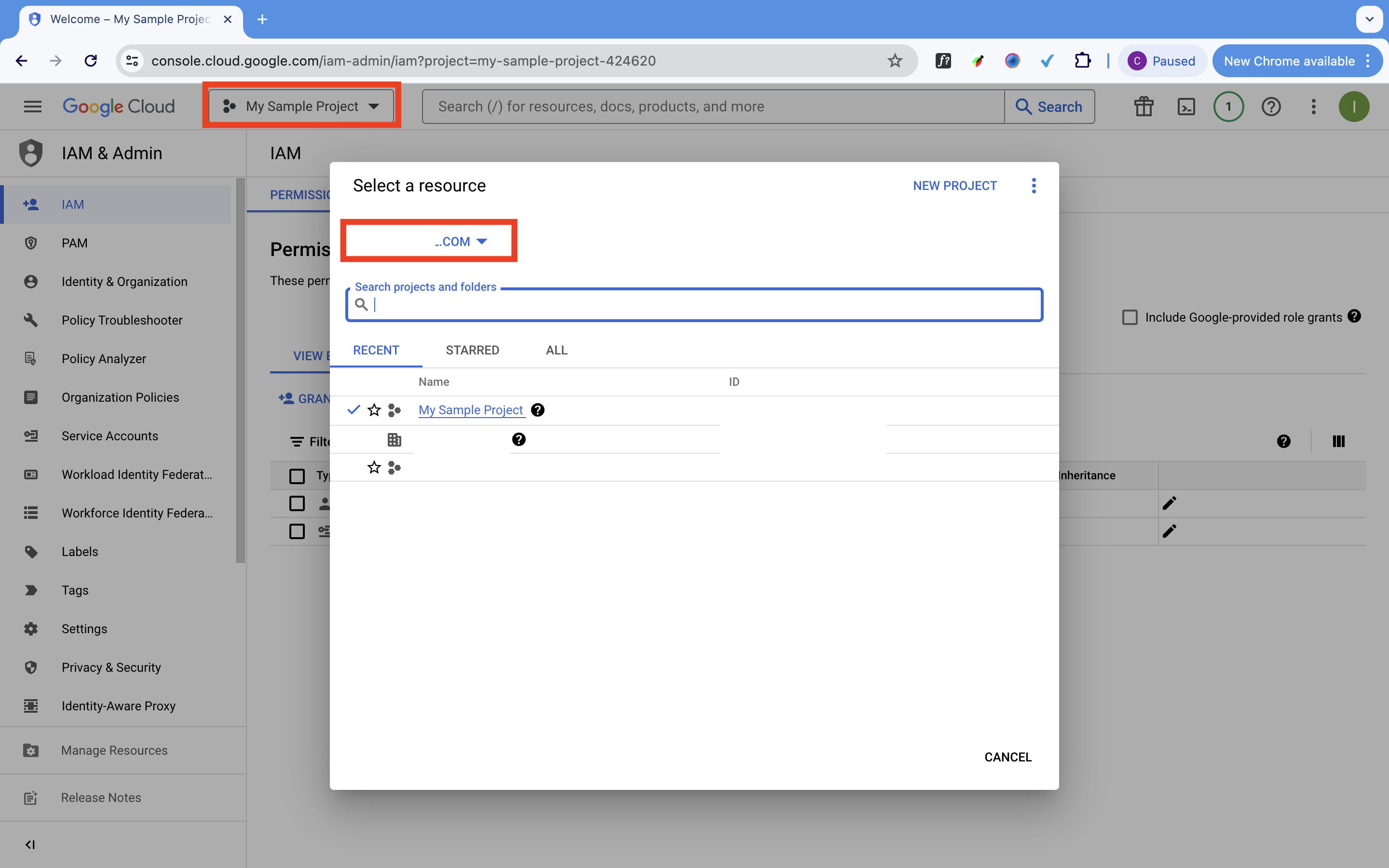
- From the left-hand menu, click on Service Accounts.
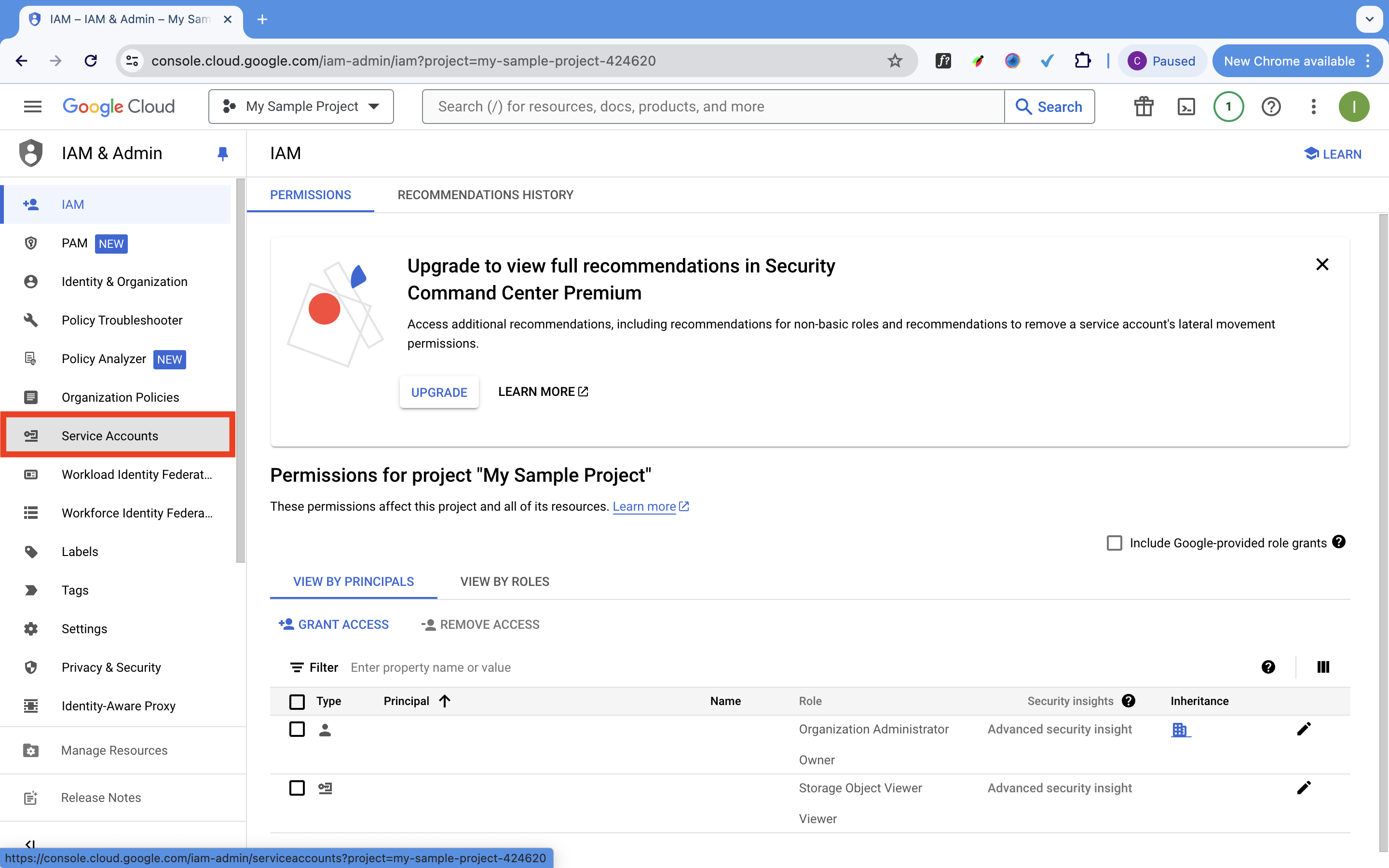
- Click the Create Service Account button.
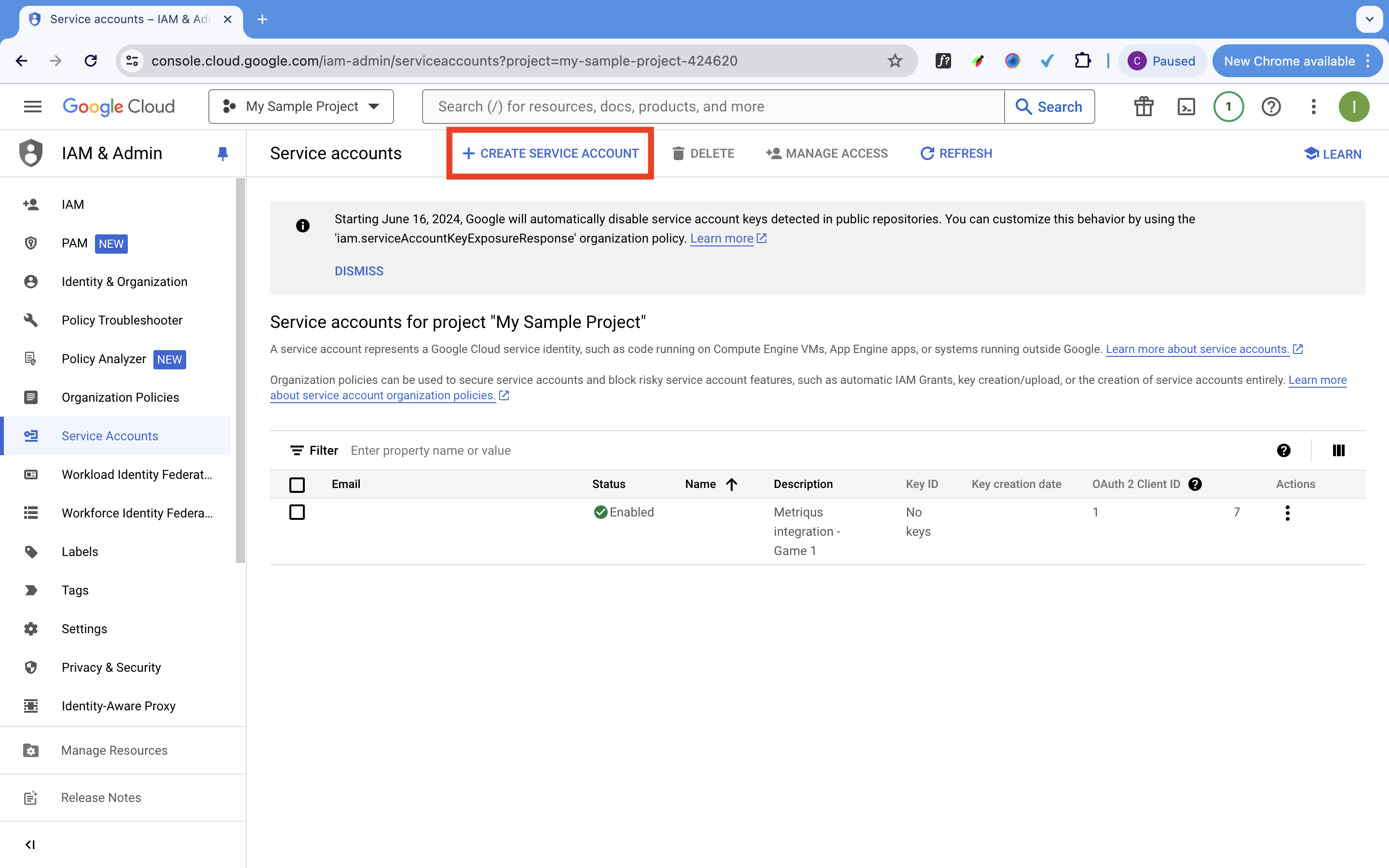
- Name the service account Metriqus – [GameName] Integration, then click “Create and Continue”.
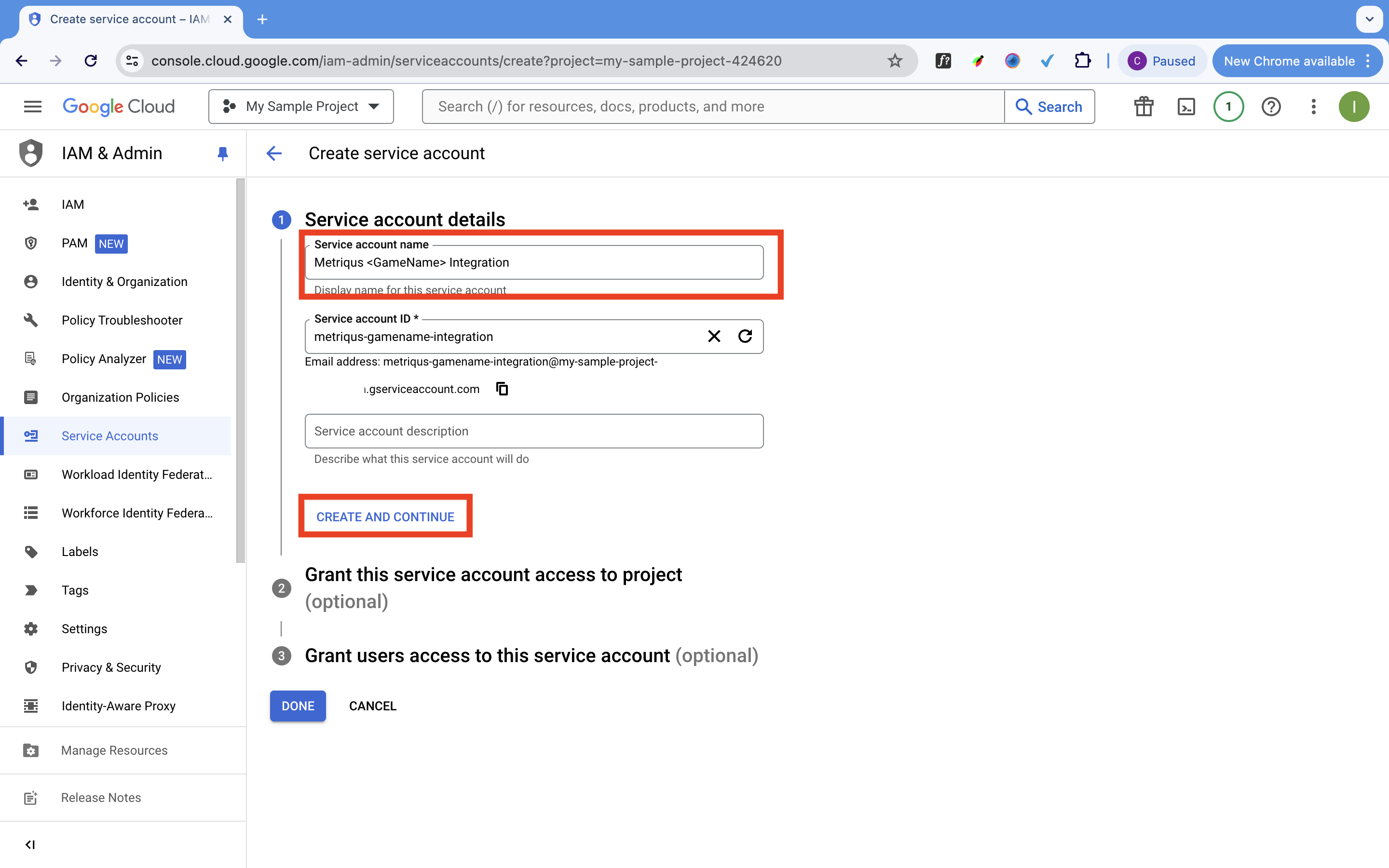
- Add these roles:
- Project > Viewer
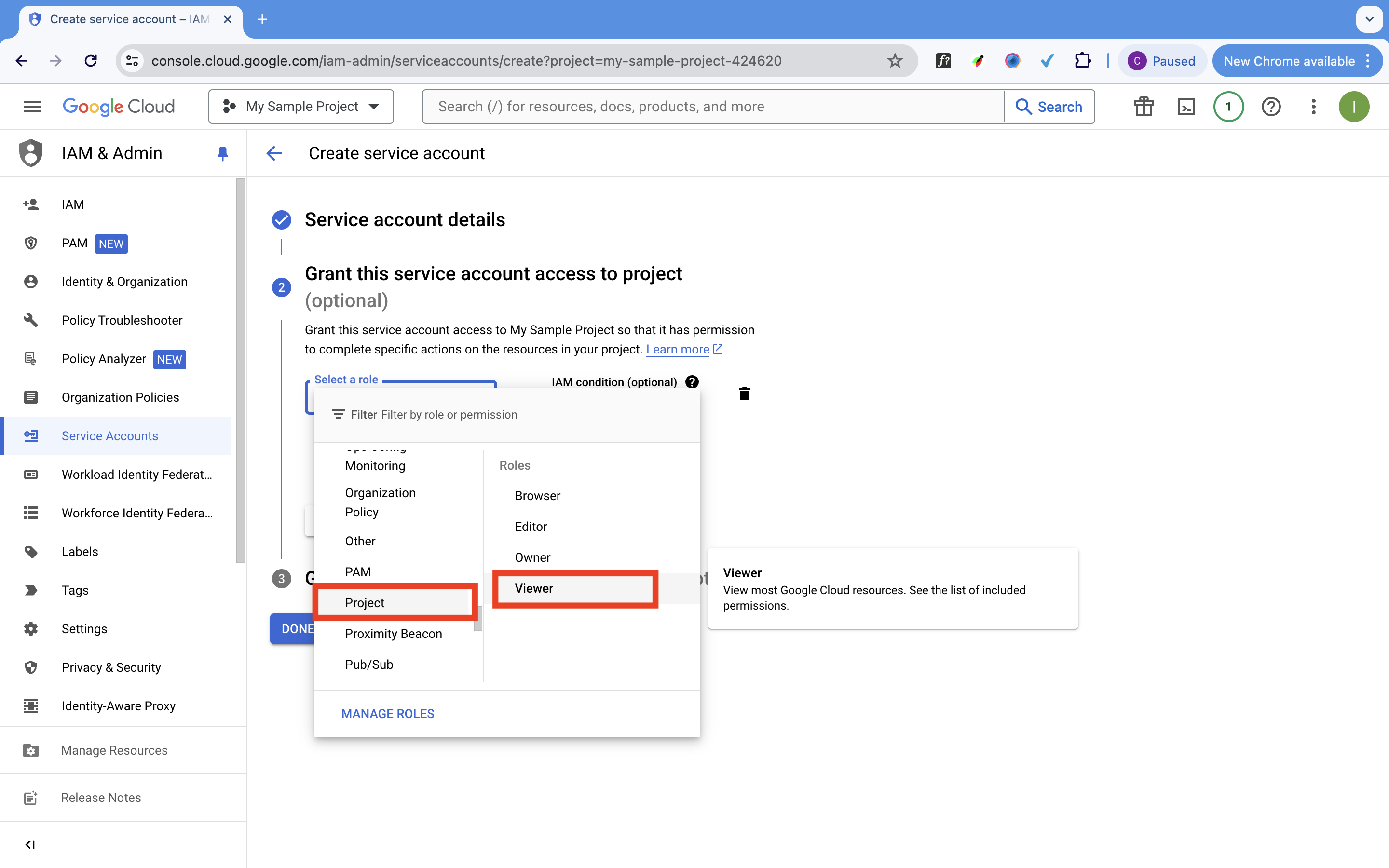
- Cloud Storage > Storage Object Viewer
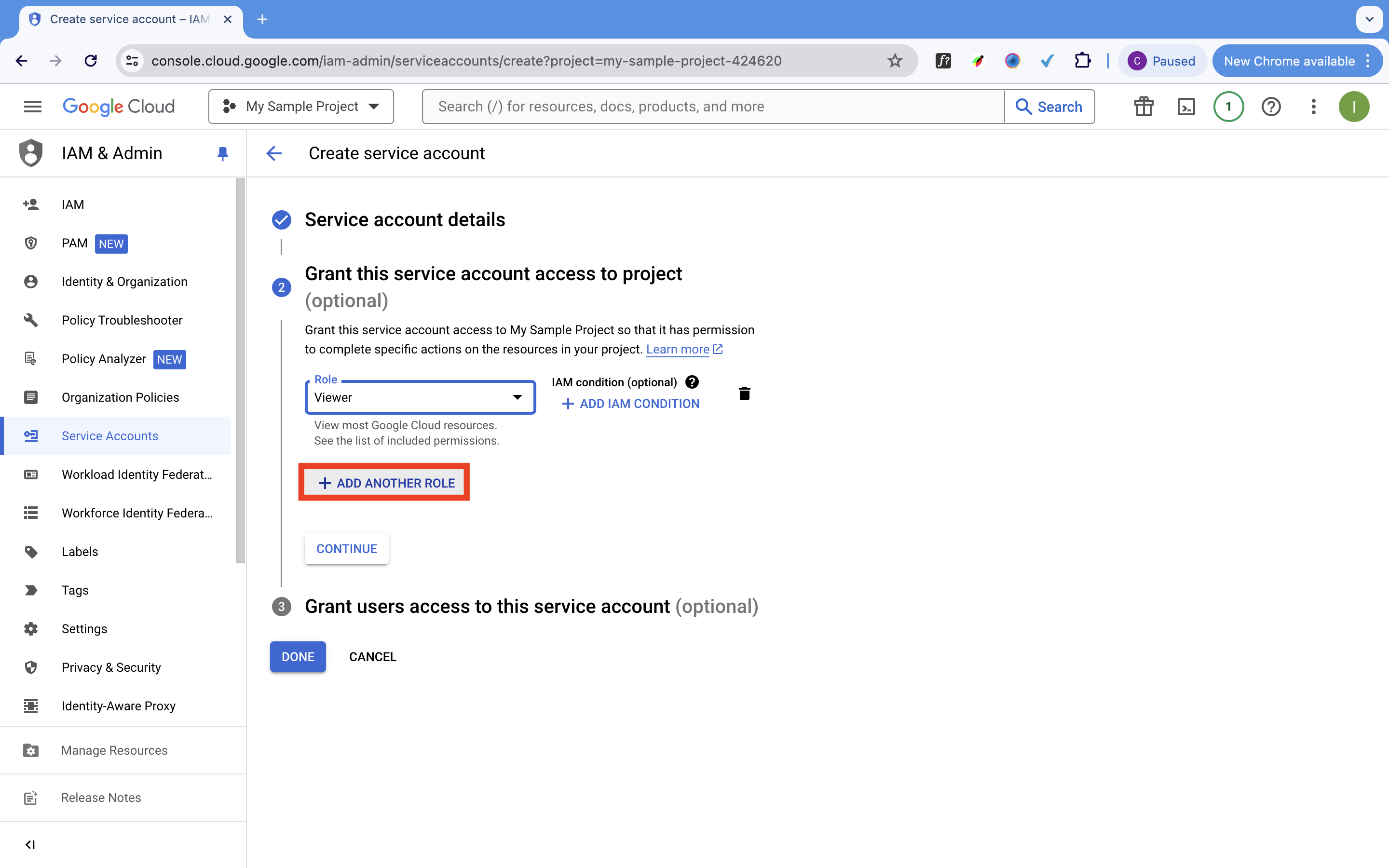
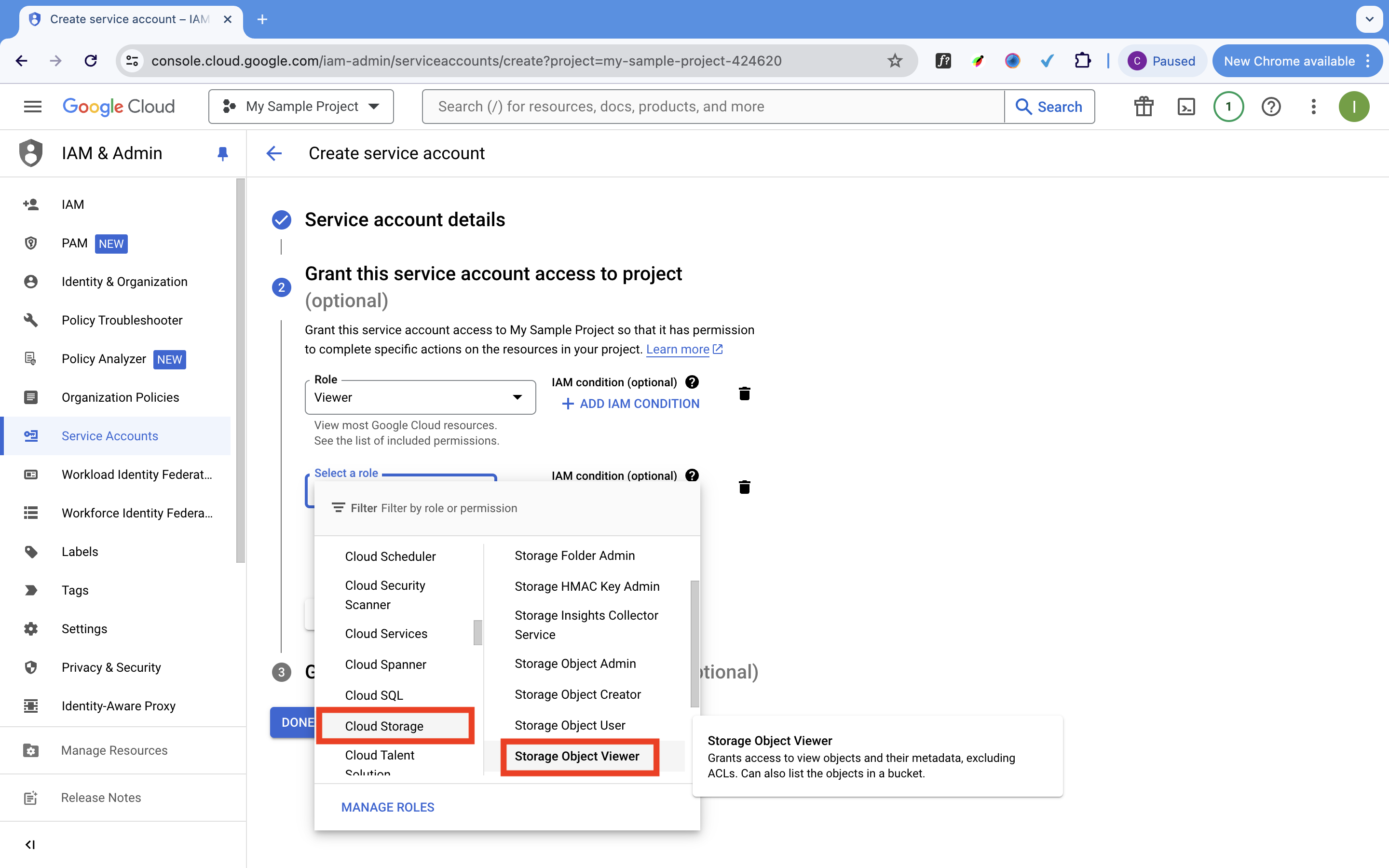
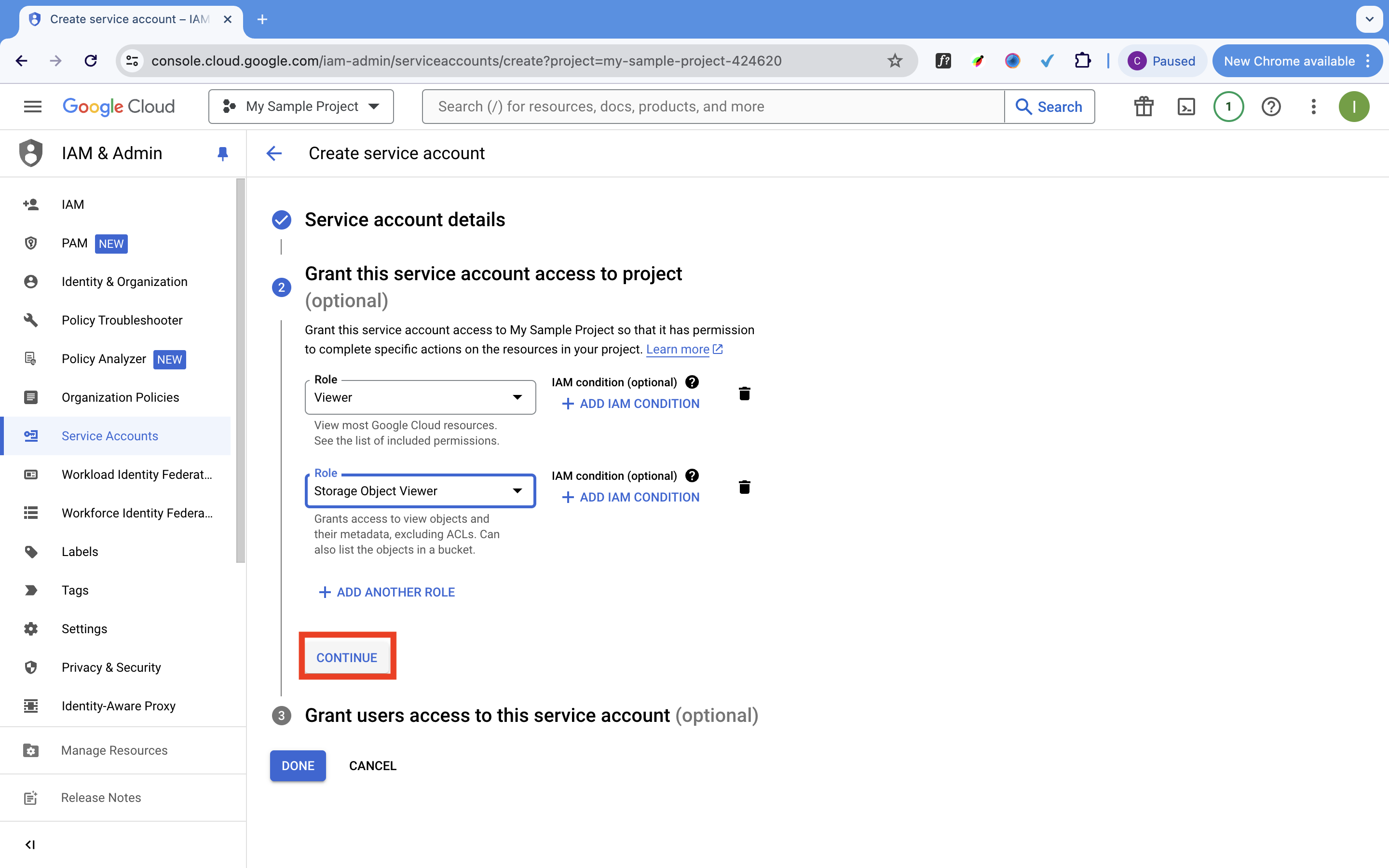
- Project > Viewer
- Copy the generated service account email address.
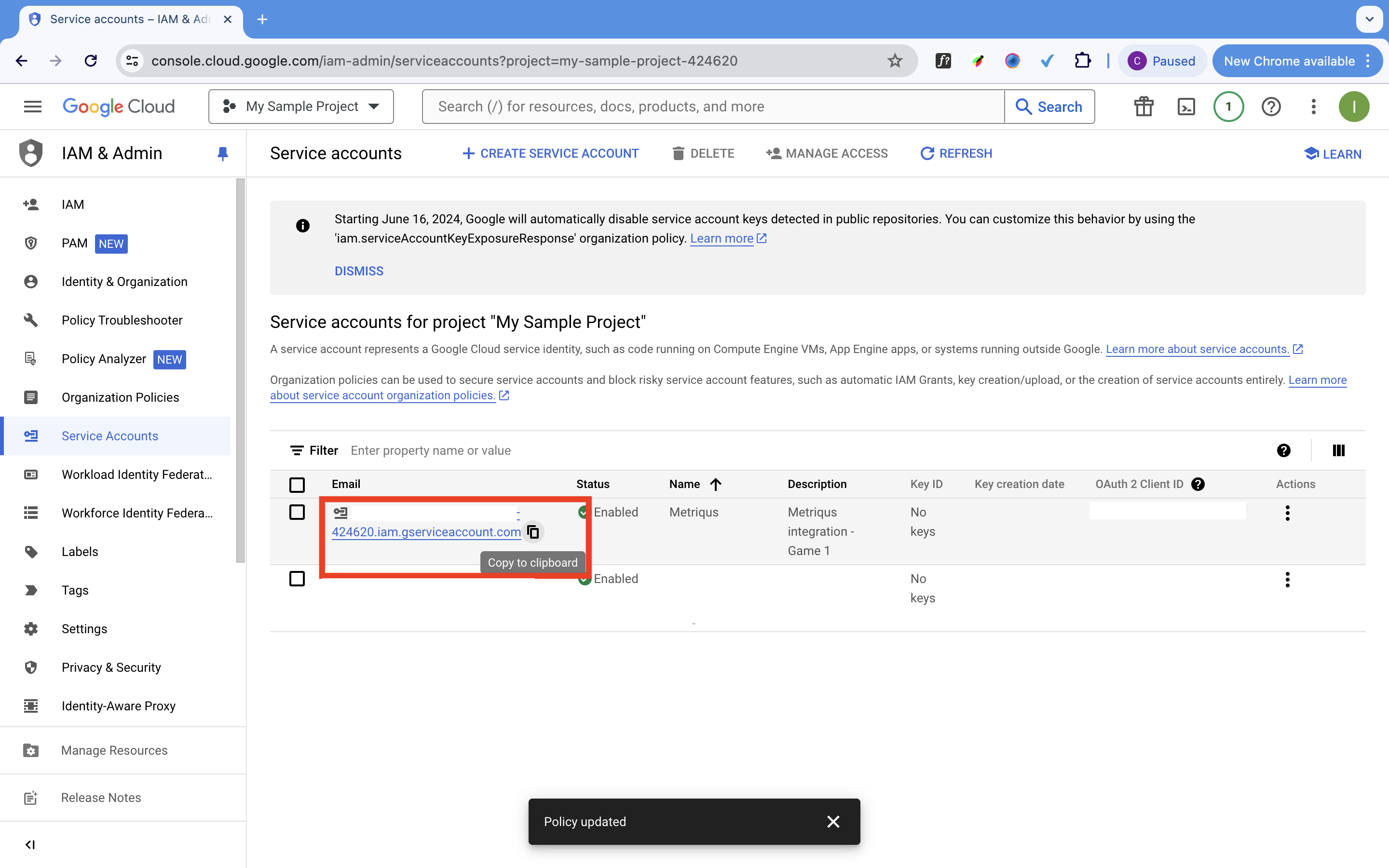
2. Authorize Service Account
- Log in to your Google Play Console account where your game is published.
- In the left-hand menu of the Google Play Console, go to "Users and Permissions"
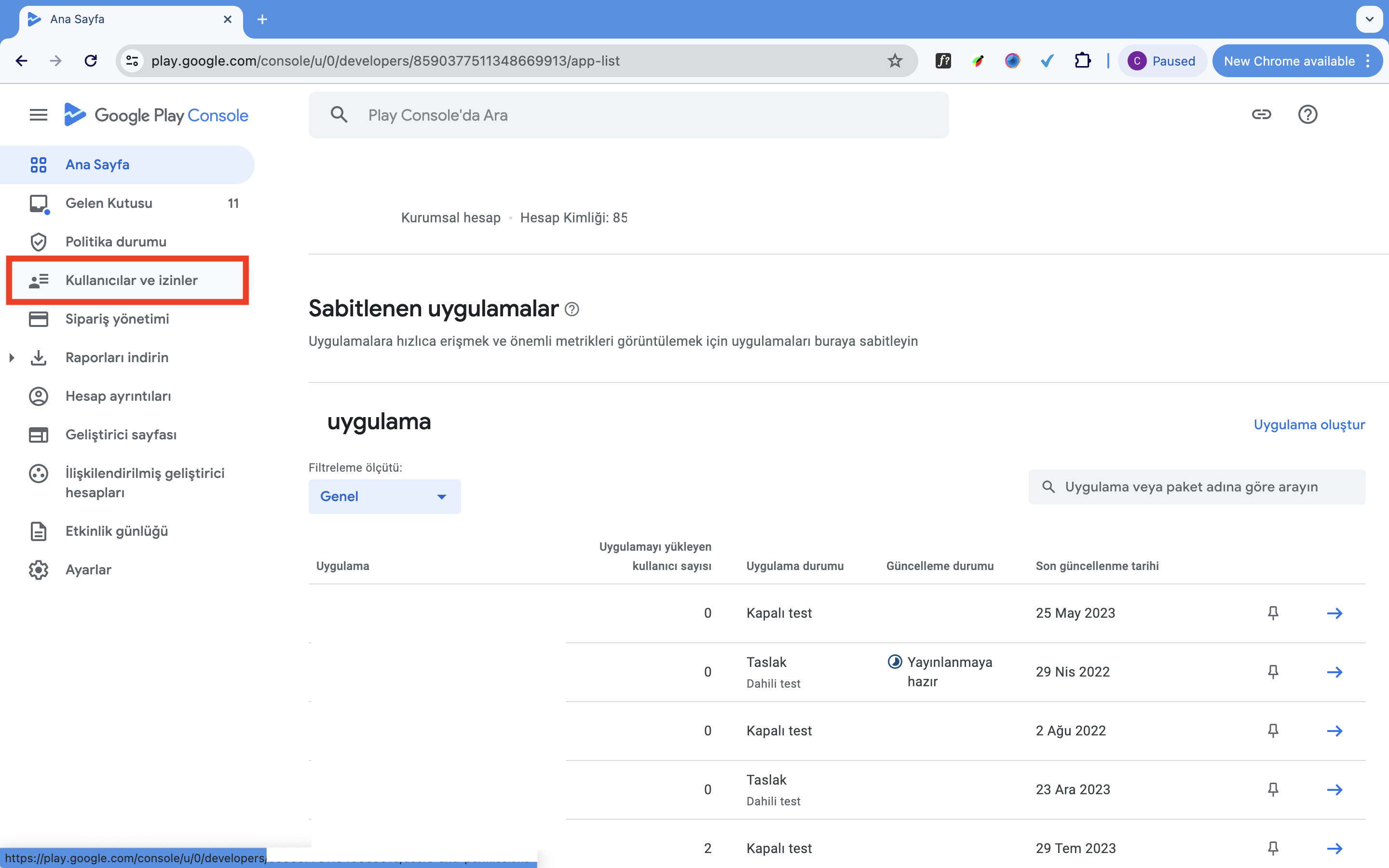
- Click the “Invite New User” button at the top right of the Users and Permissions page.
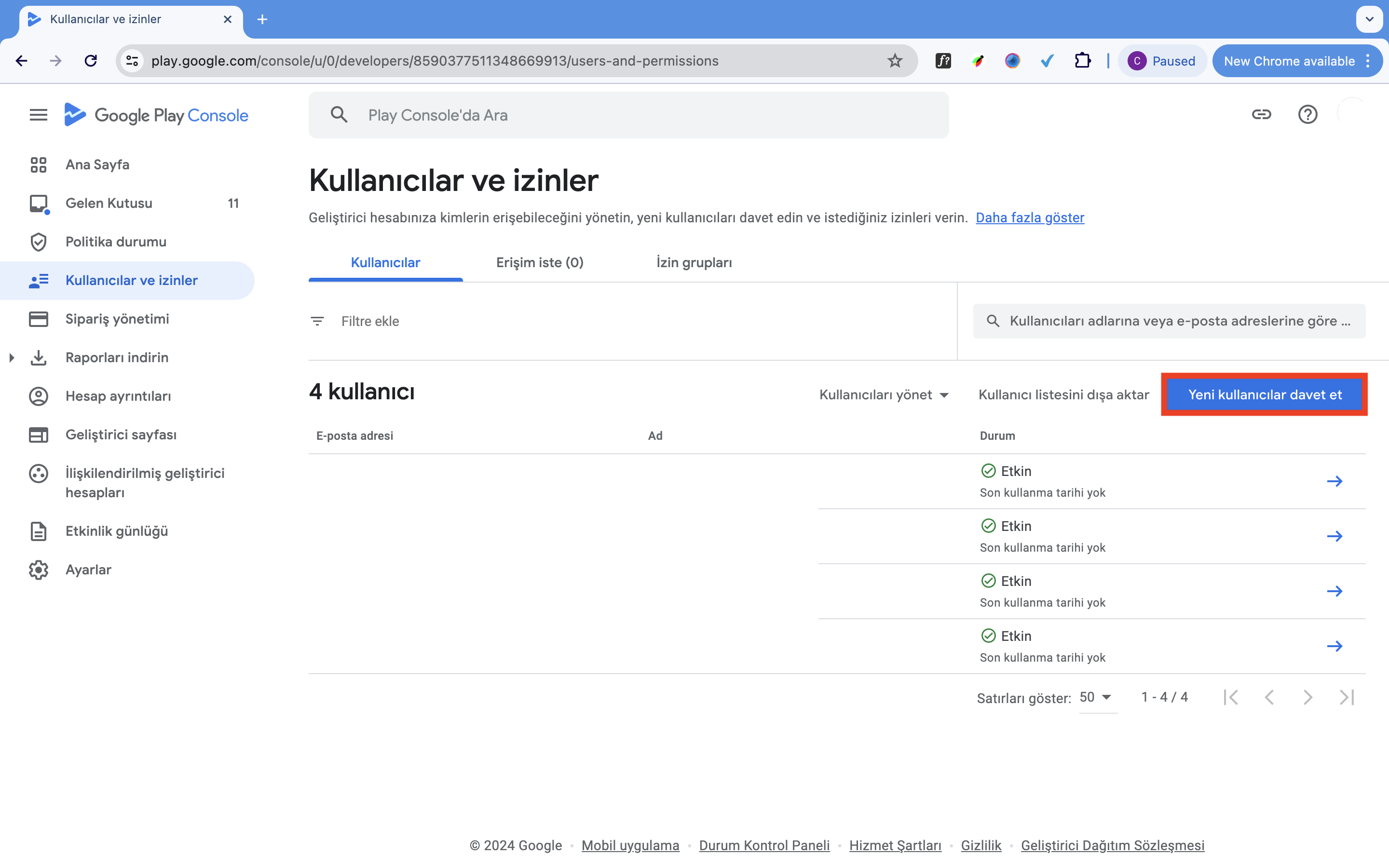
- Paste the copied service account email into the Email address field.
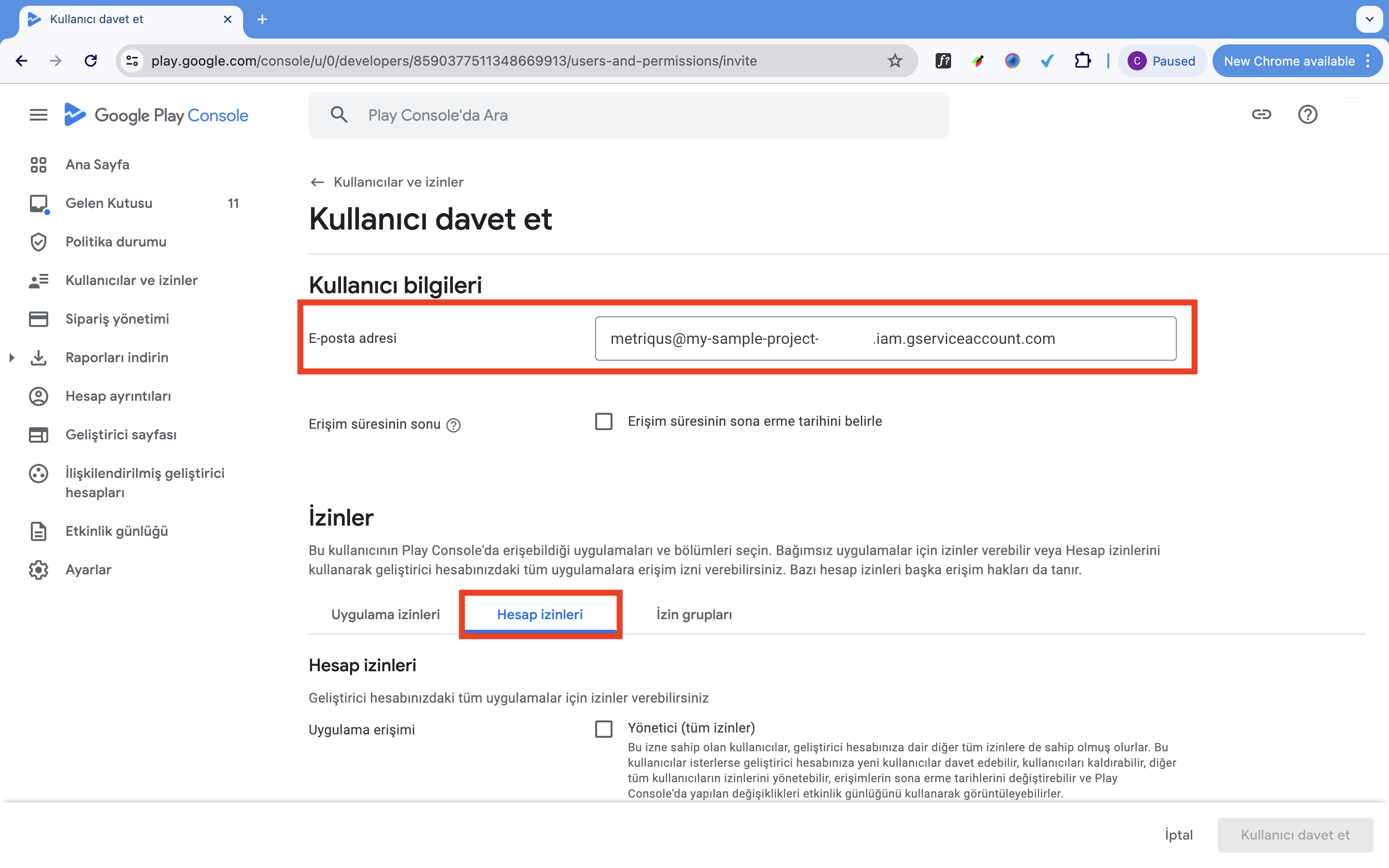
- Under Permissions tab, grant access to:
- Account access → View app information and download bulk reports (read-only)
- Financial data → View financial data, orders, and cancellation survey responses
- Financial data → Manage orders and subscriptions
- Click Invite User
3. Download Private Key
- Go to Google Cloud Console
- Navigate to “IAM & Admin” section.

- Choose your organization and find the created service account

- Click the service account you created at the previous step.
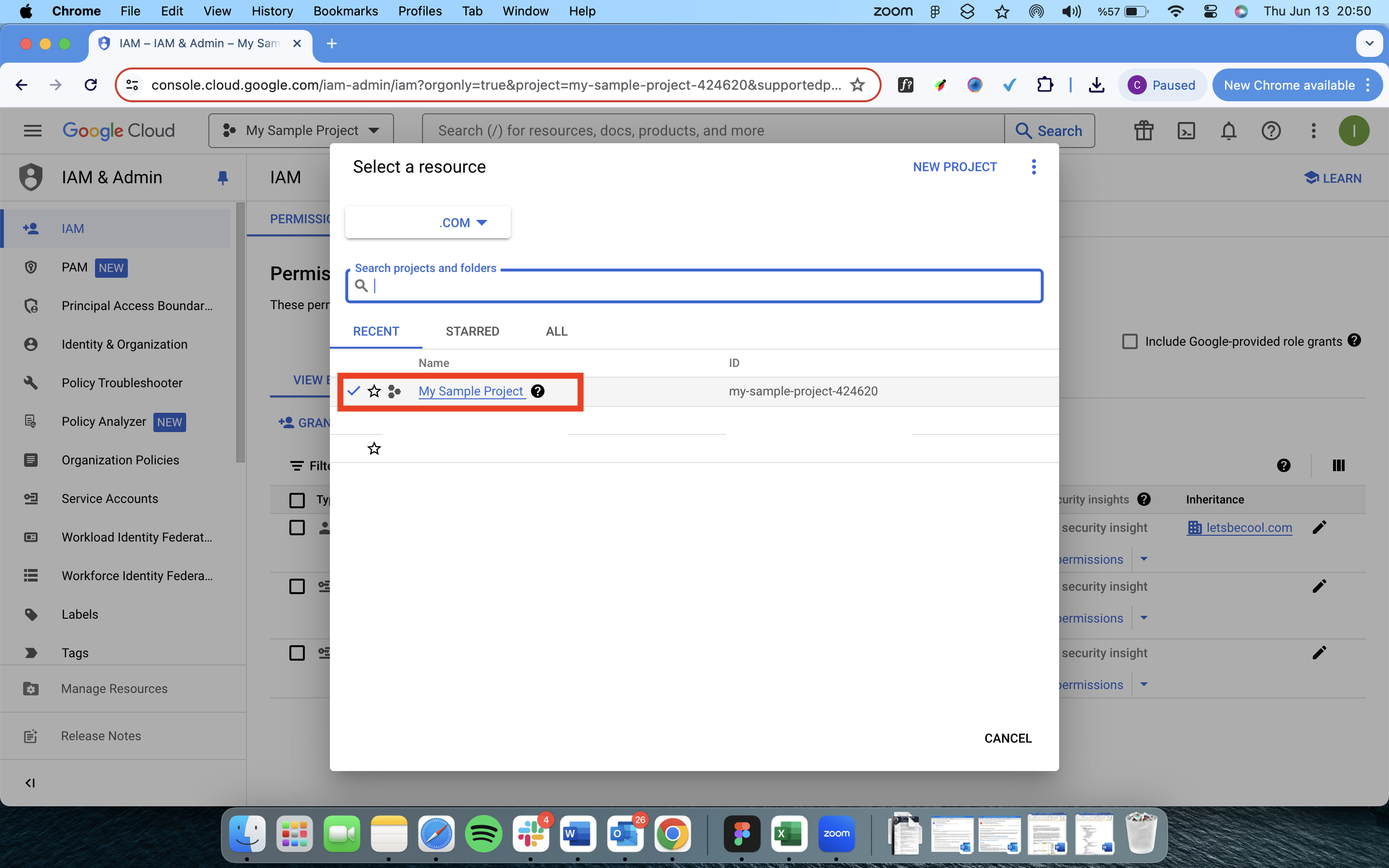
- Open the KEYS tab
- Click Add Key > Create New Key
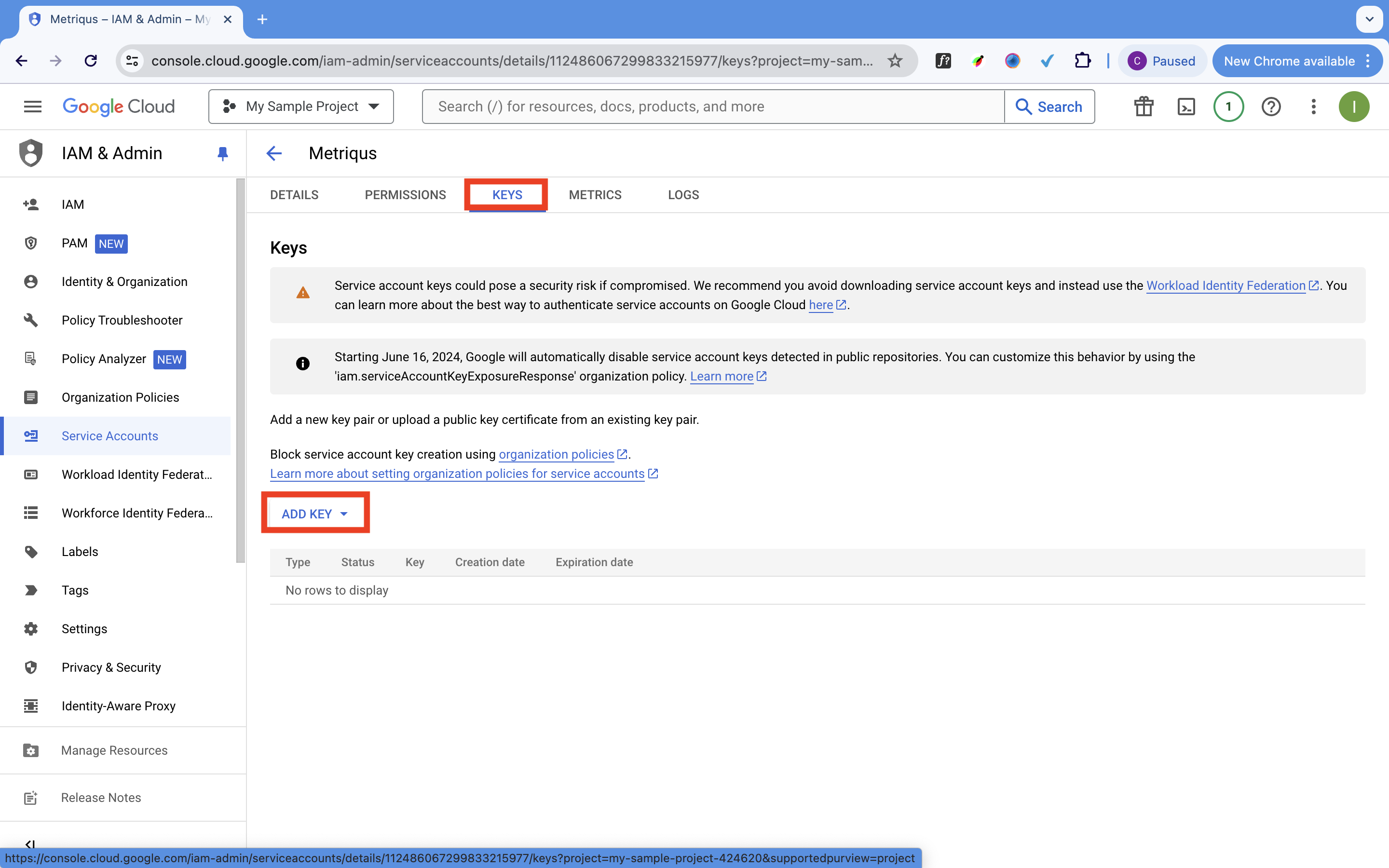
- Select "JSON" and click "Create".
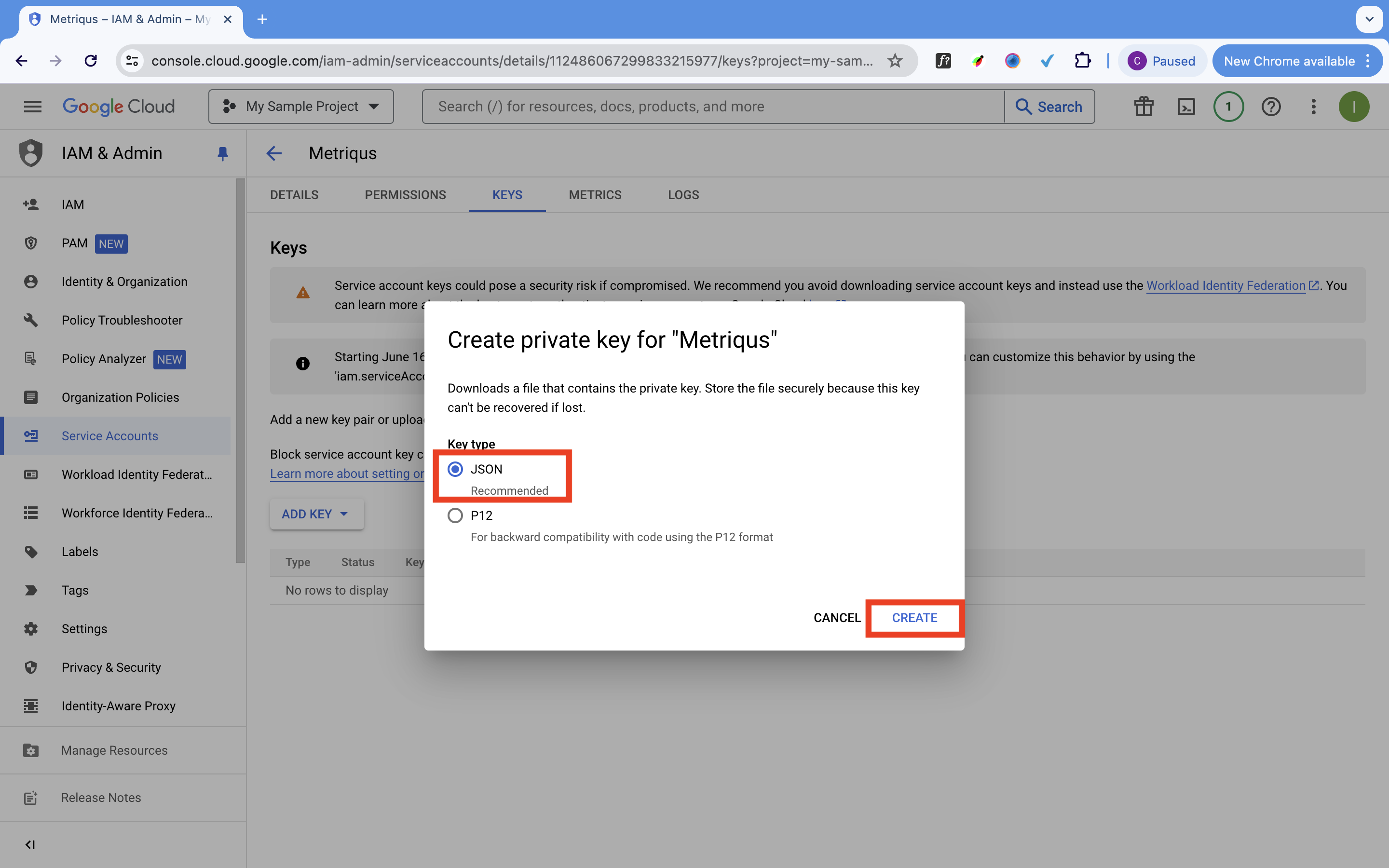
- Upload the downloaded JSON key file to the relevant upload modal in the Metriqus dashboard.
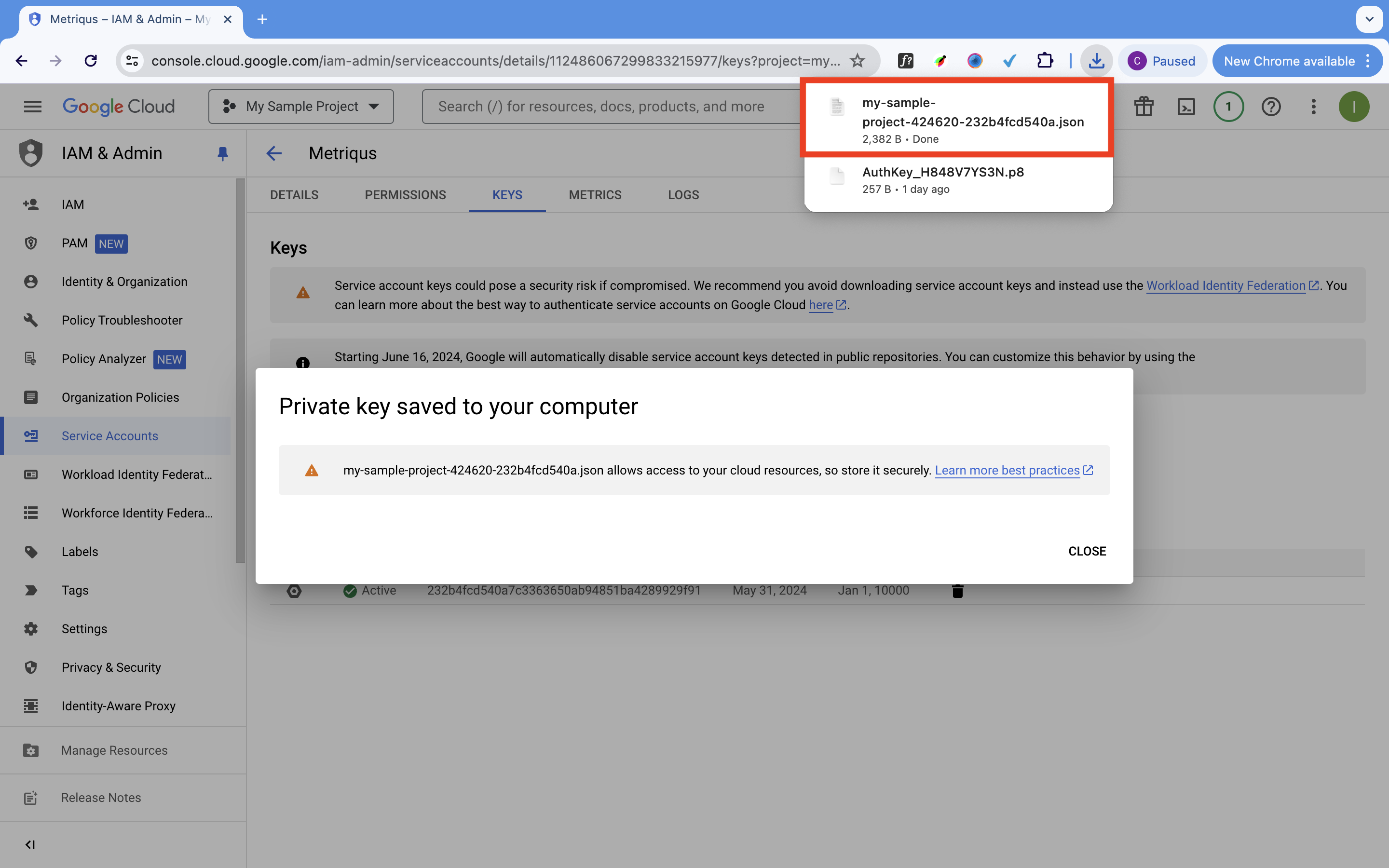
4. Get Package Name
- Go to Google Play Console
- Choose Home from the menu
- Select your app and copy the package name under the title (e.g.
com.gamename.app)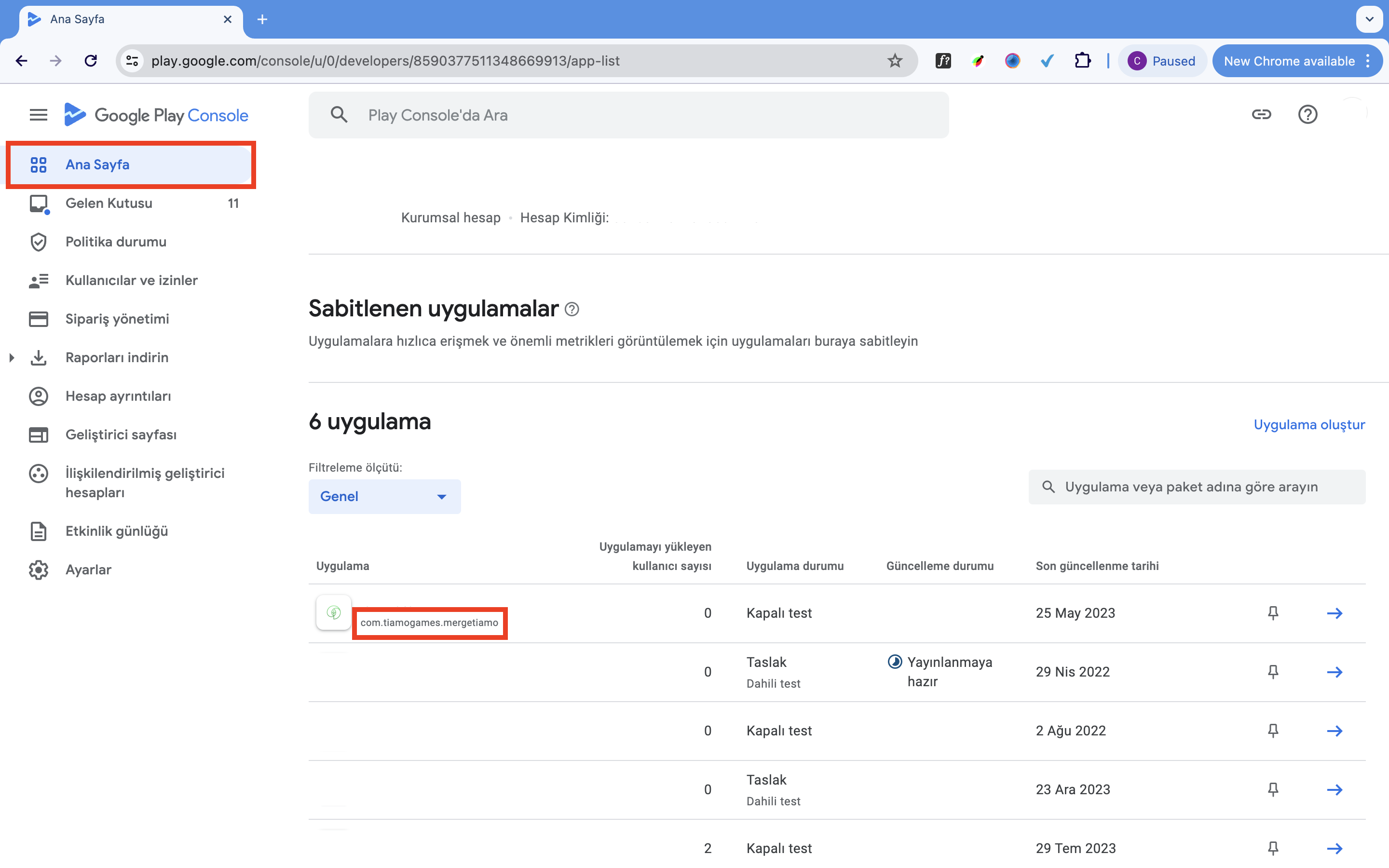
5. Get Cloud Storage URI
- Go to Google Play Console
- In the Google Play Console, go to "Download Reports" then select the "Statistics" tab.
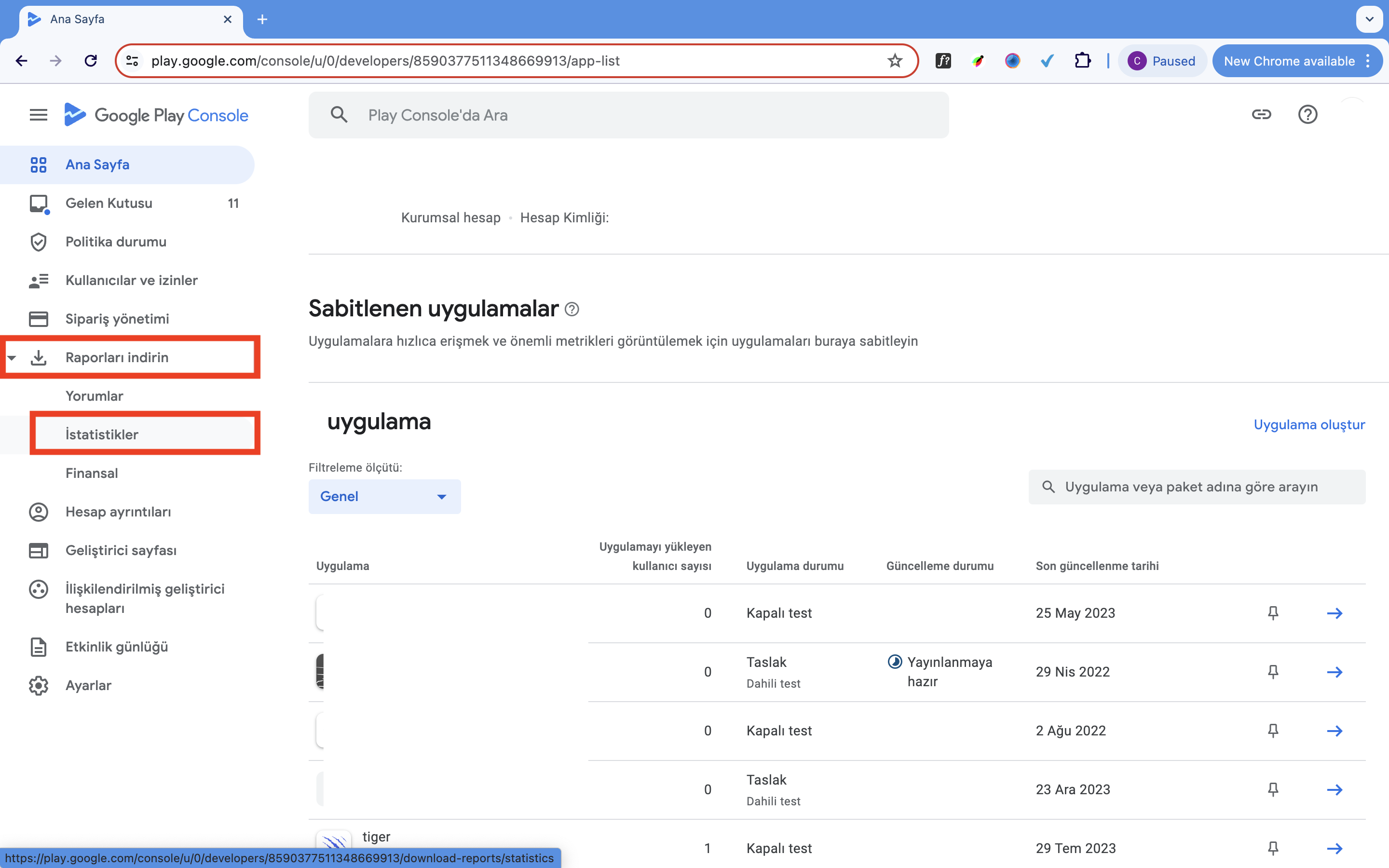
- Select the relevant app if prompted
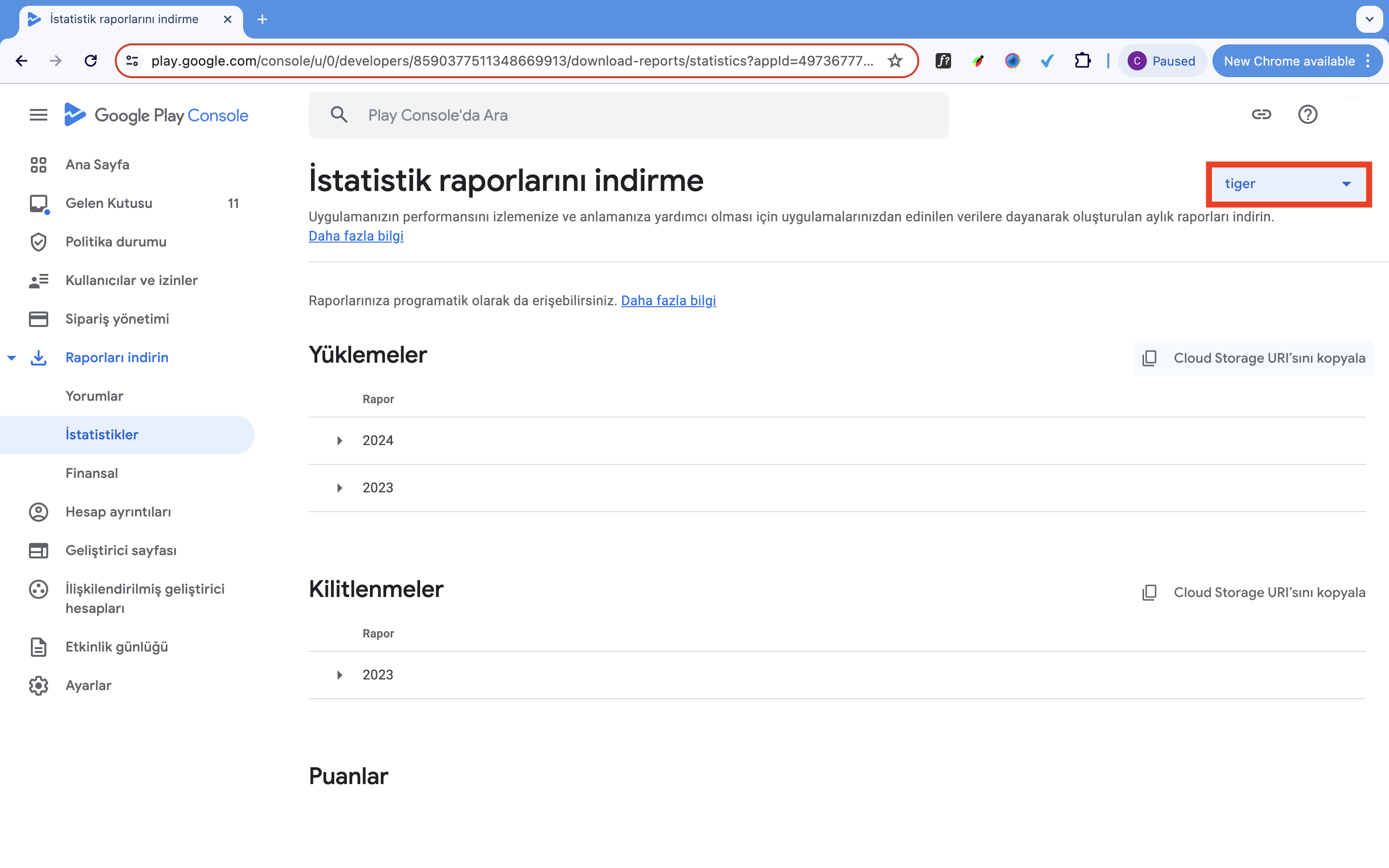
- Click "Copy Cloud Storage URI" next to the Downloads row under the Statistics tab.
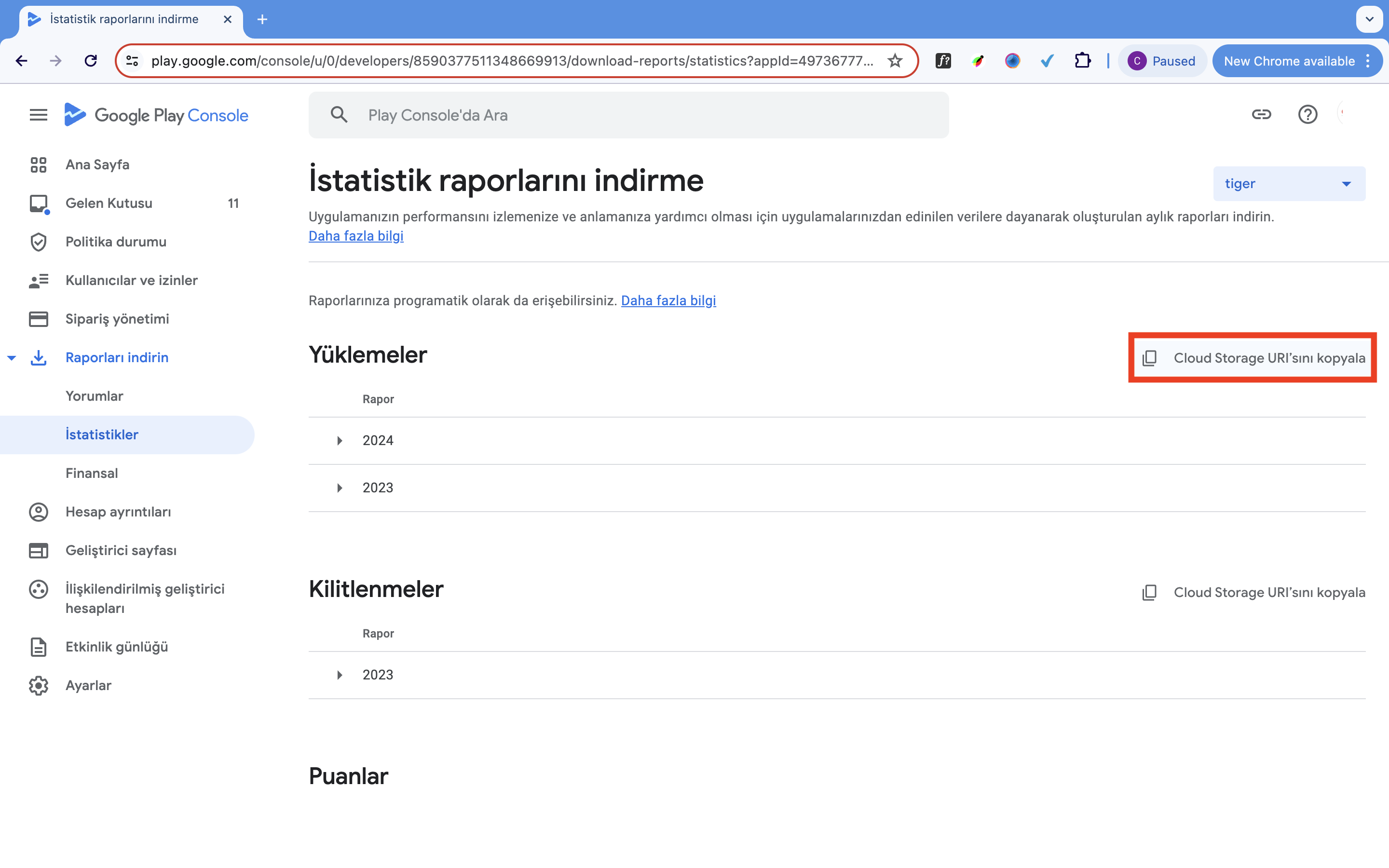
Google AdMob Integration
Follow these steps to connect your AdMob account to Metriqus for accurate revenue attribution and ad performance insights.
1. Select Your App
From the “Apps” tab in the Metriqus platform, select the app you want to integrate with a channel/platform, then click the relevant section for AdMob integration.
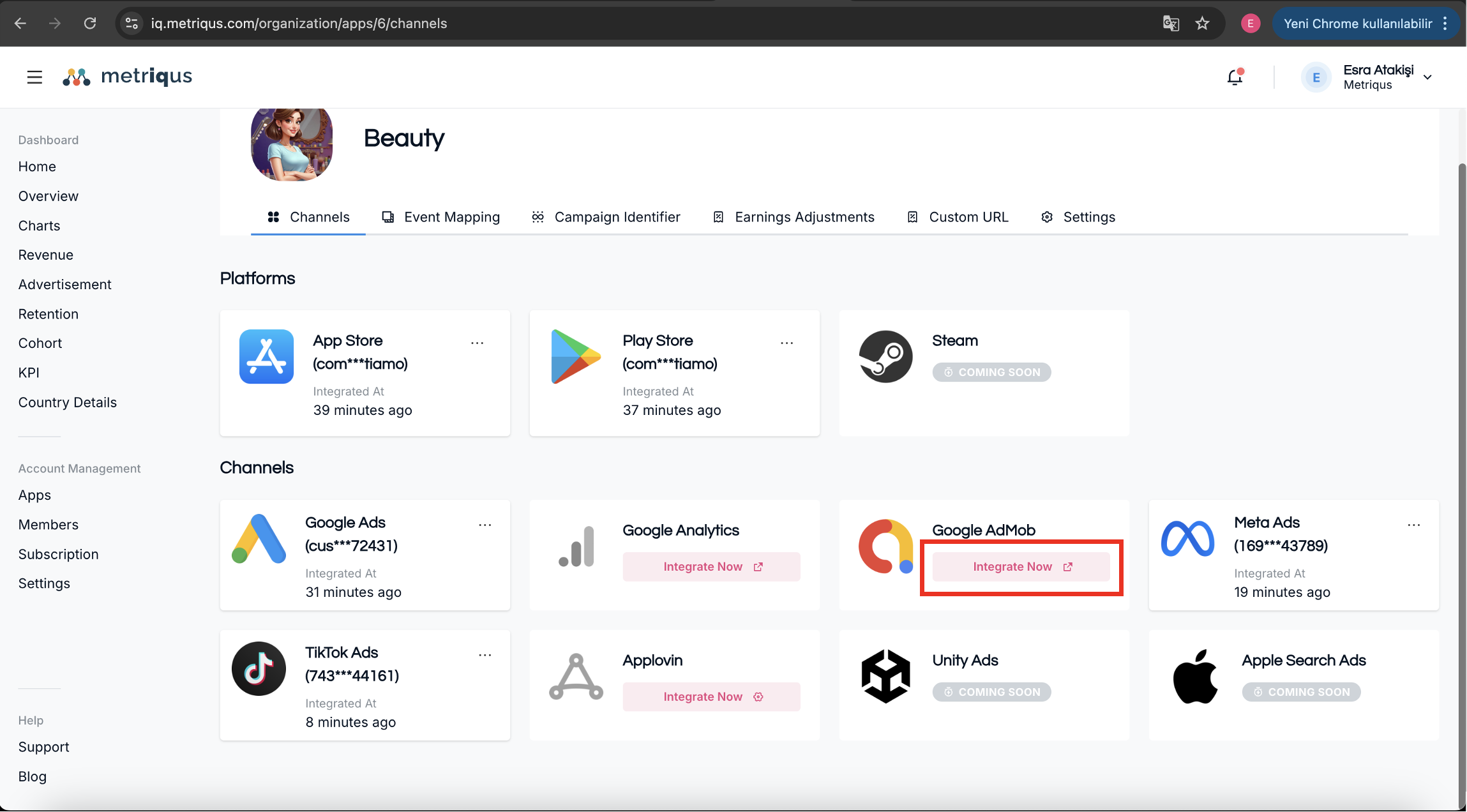
2. Choose AdMob Account
Select the account you want to integrate.
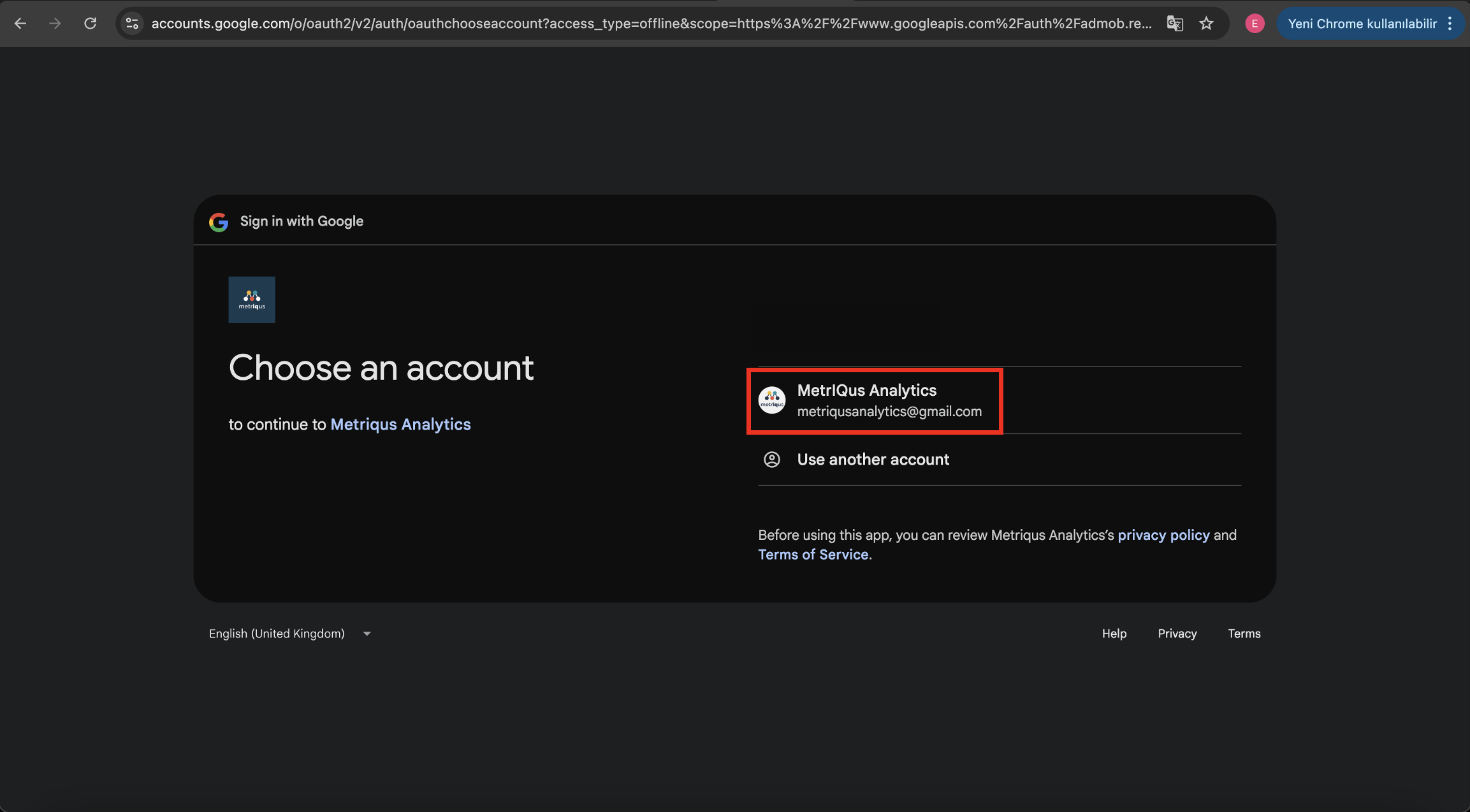
3. Grant Permissions
Click the “Select all” button to grant the necessary permissions, then click “Continue”.
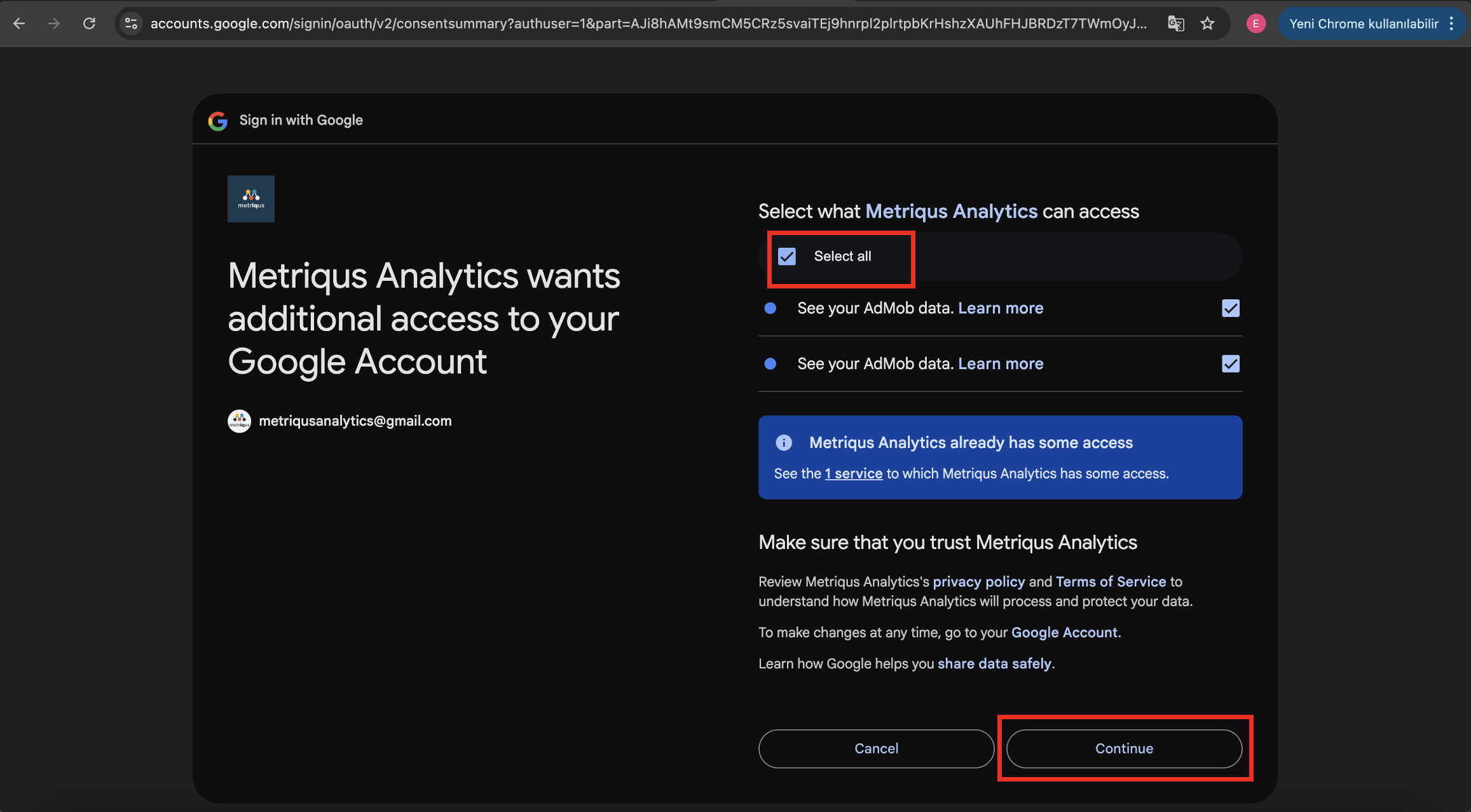
4. Submit Publisher Account
On the screen that appears, select the relevant Publisher account and click the “Submit” button.
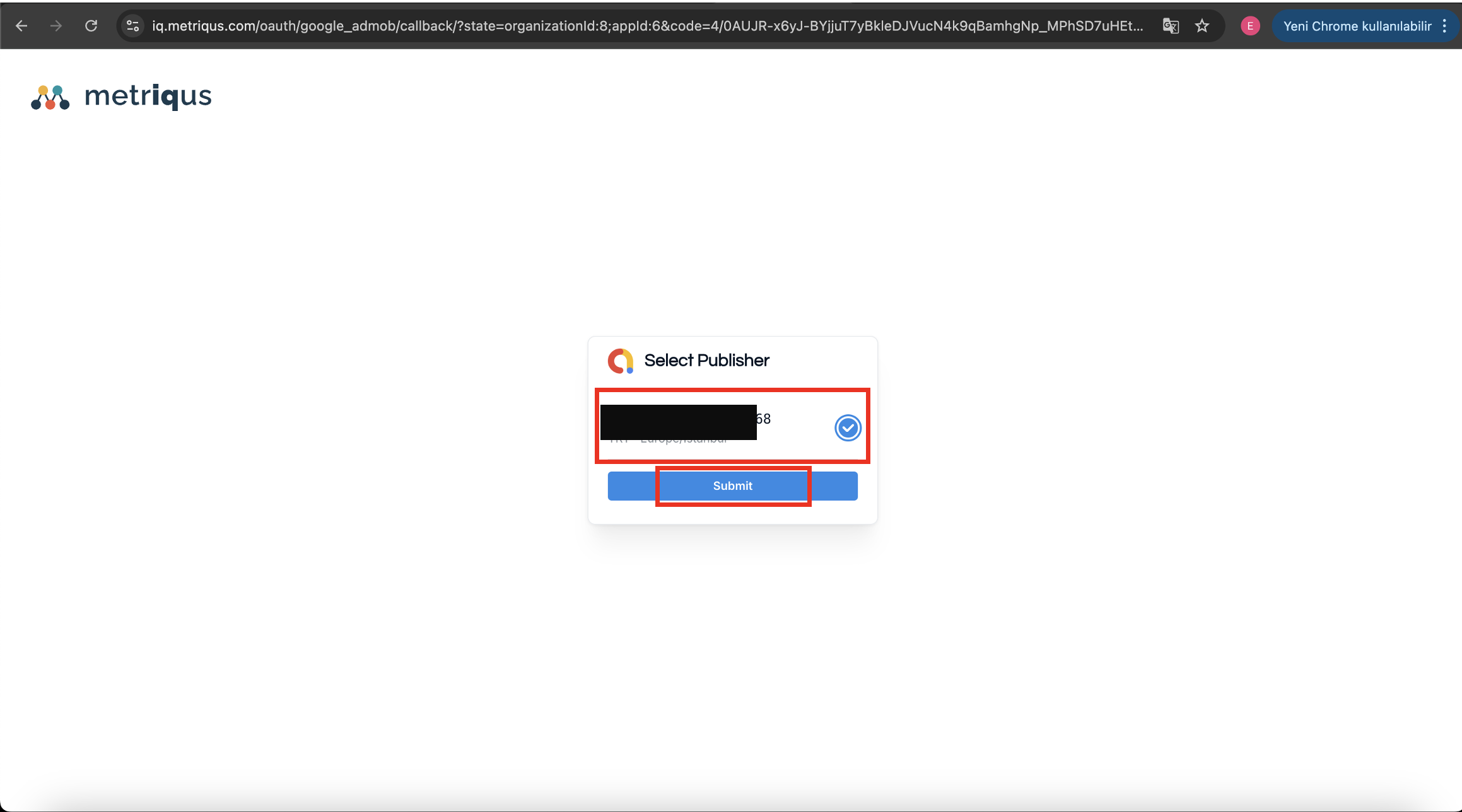
5. Finish
Congratulations, you have successfully completed the AdMob integration! You can click “Go to Apps” button.
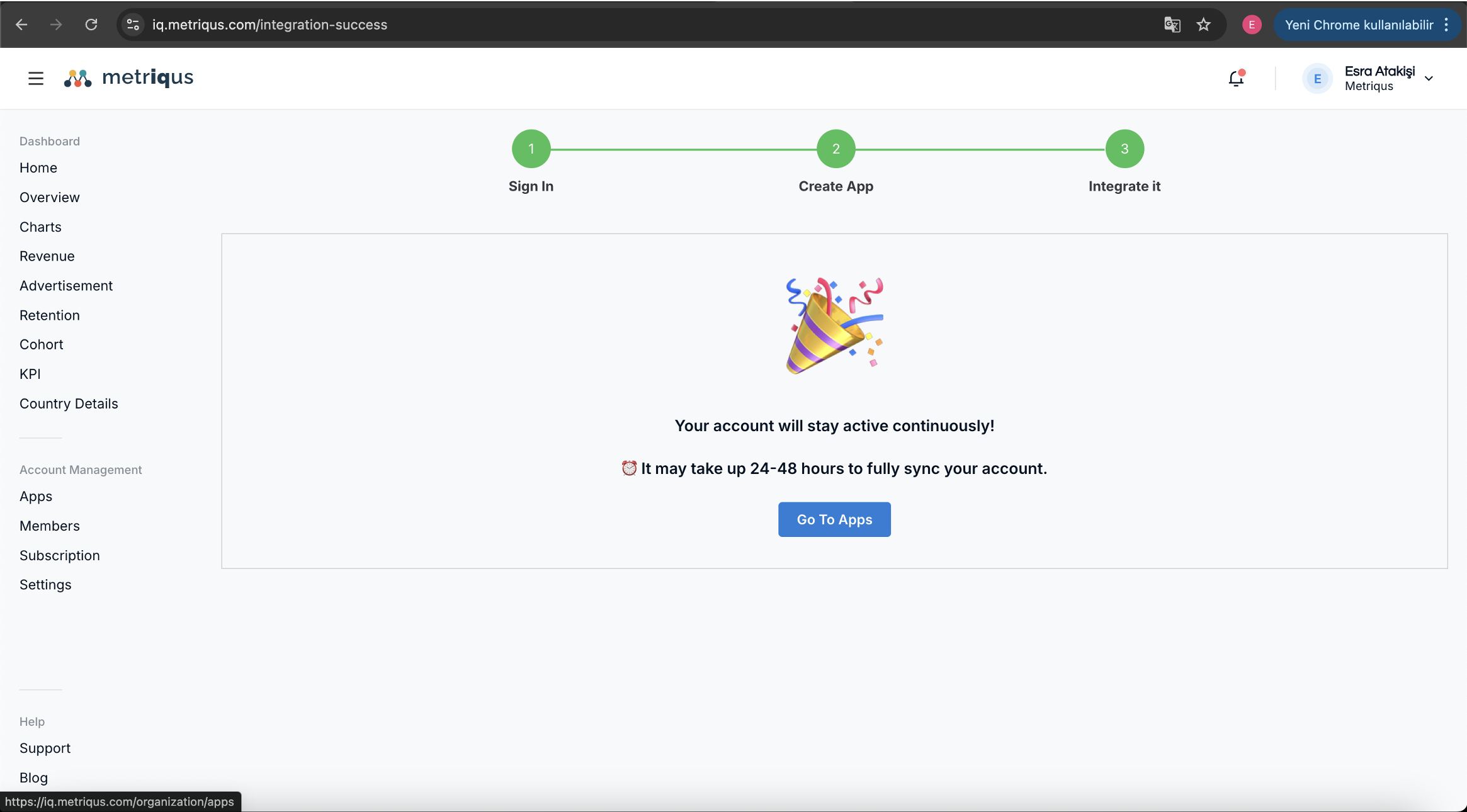
AppLovin Max Integration
Follow these steps to connect your AppLovin account to Metriqus and start tracking ad performance and campaign metrics.
1. Retrieve Report Key
- Log in to your AppLovin account at https://dash.applovin.com/login
- In the AppLovin dashboard, go to the "Account" section from the top menu.
- Navigate to the "Keys" section under "Account" to access your "Report Key"
- Copy the "Report Key"

Google Ads Integration
Follow these steps to connect your Google Ads account to Metriqus for ad spend and campaign performance analysis.
1. Select Your App
From the “Apps” tab in the Metriqus platform, select the app you want to integrate with a channel/platform, then click the relevant section for Google Ads integration.
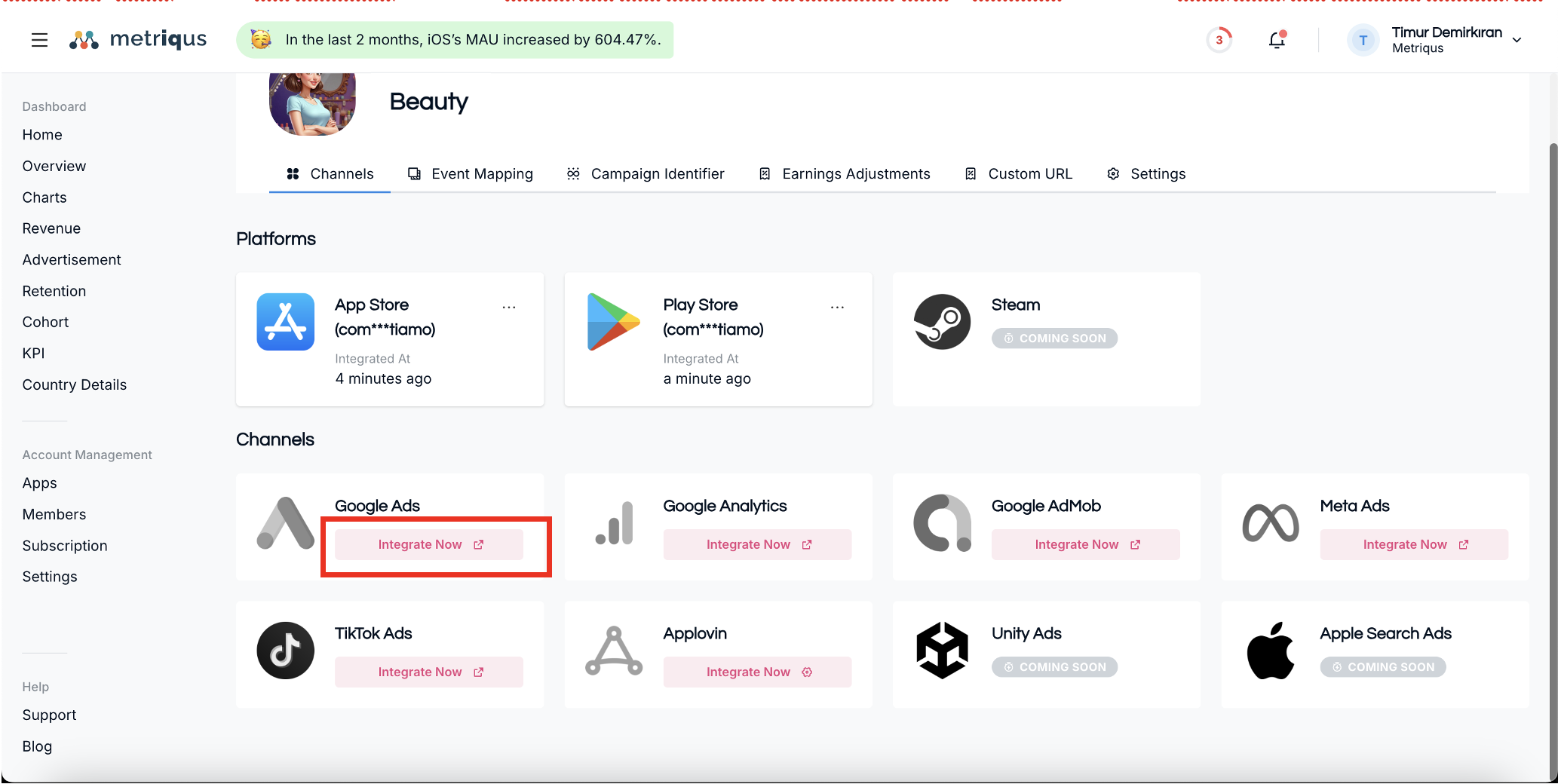
2. Choose Google Ads Account
Select the account you want to integrate.
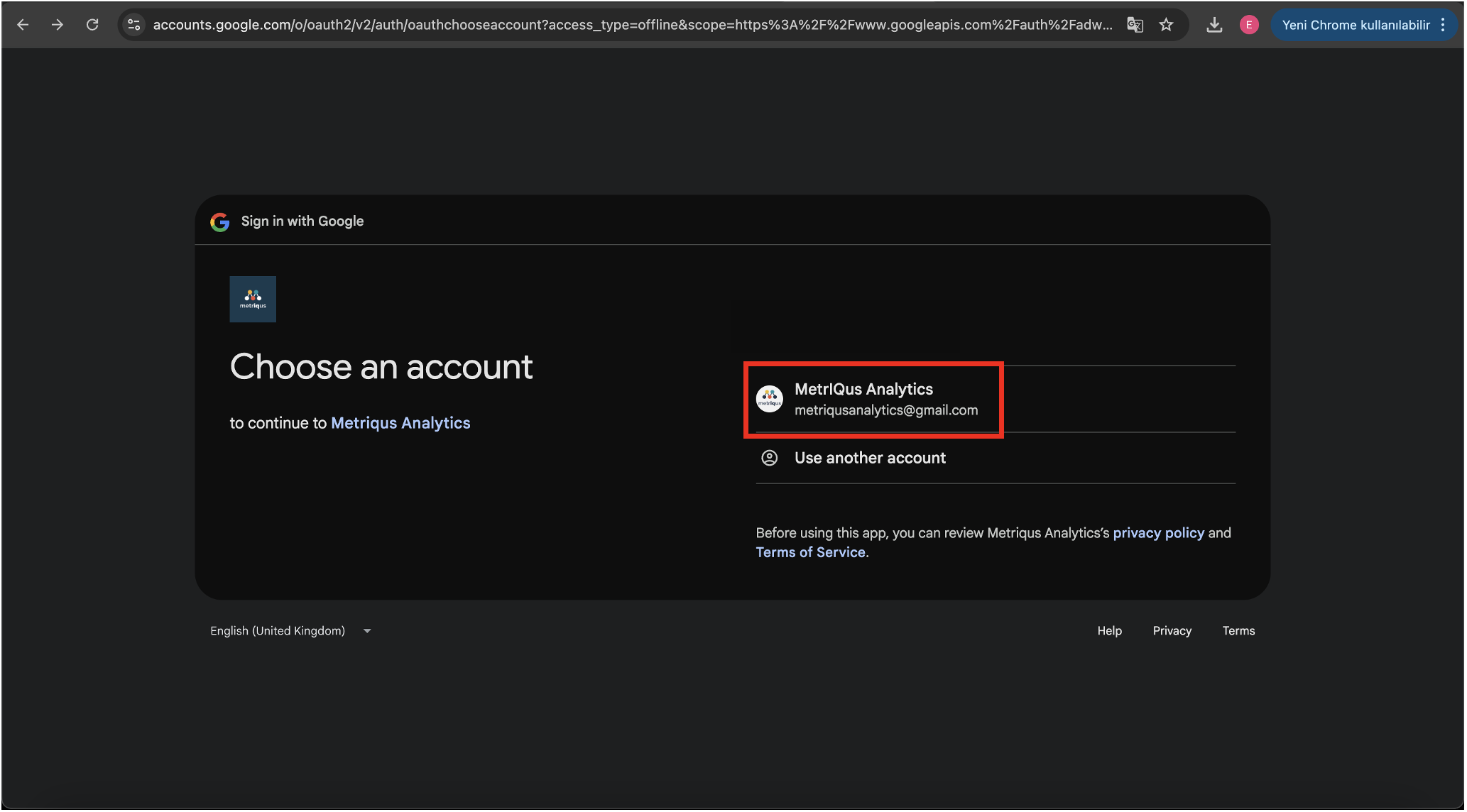
3. Continue
Click the “Continue” button.
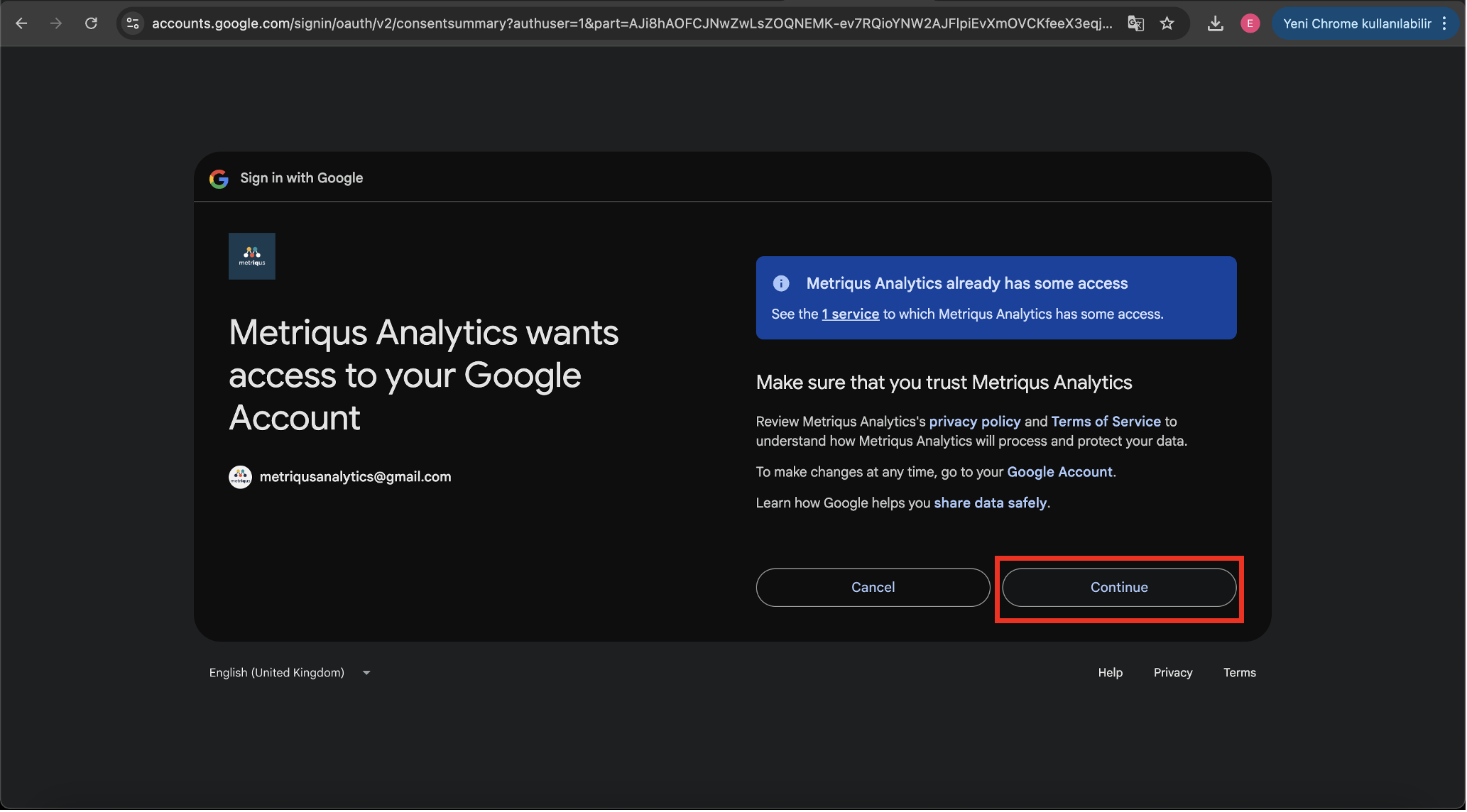
4. Select Customer
Please select customer.
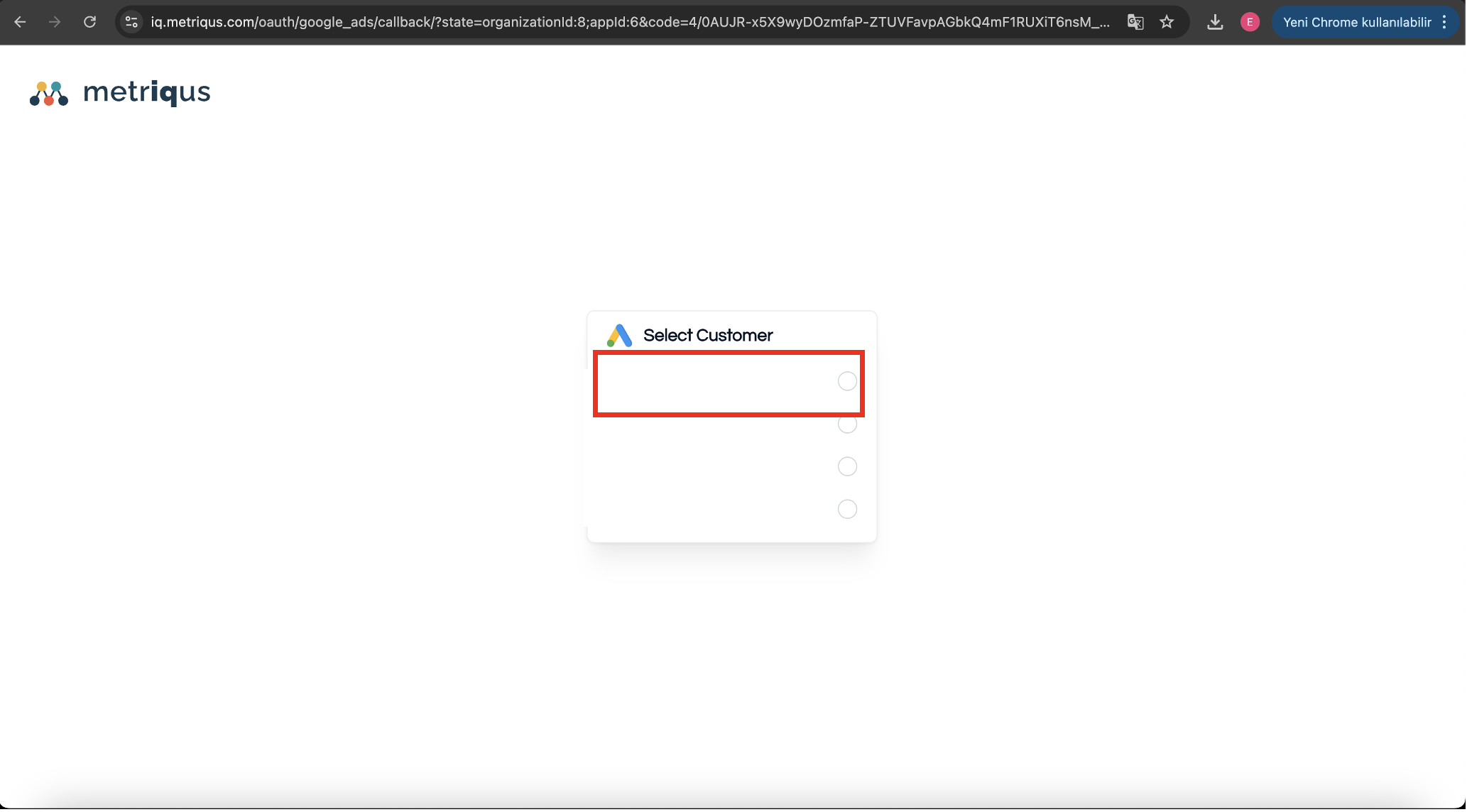
5. Finish
Congratulations, you have successfully completed the Google Ads integration! You can click “Go to Apps” button.
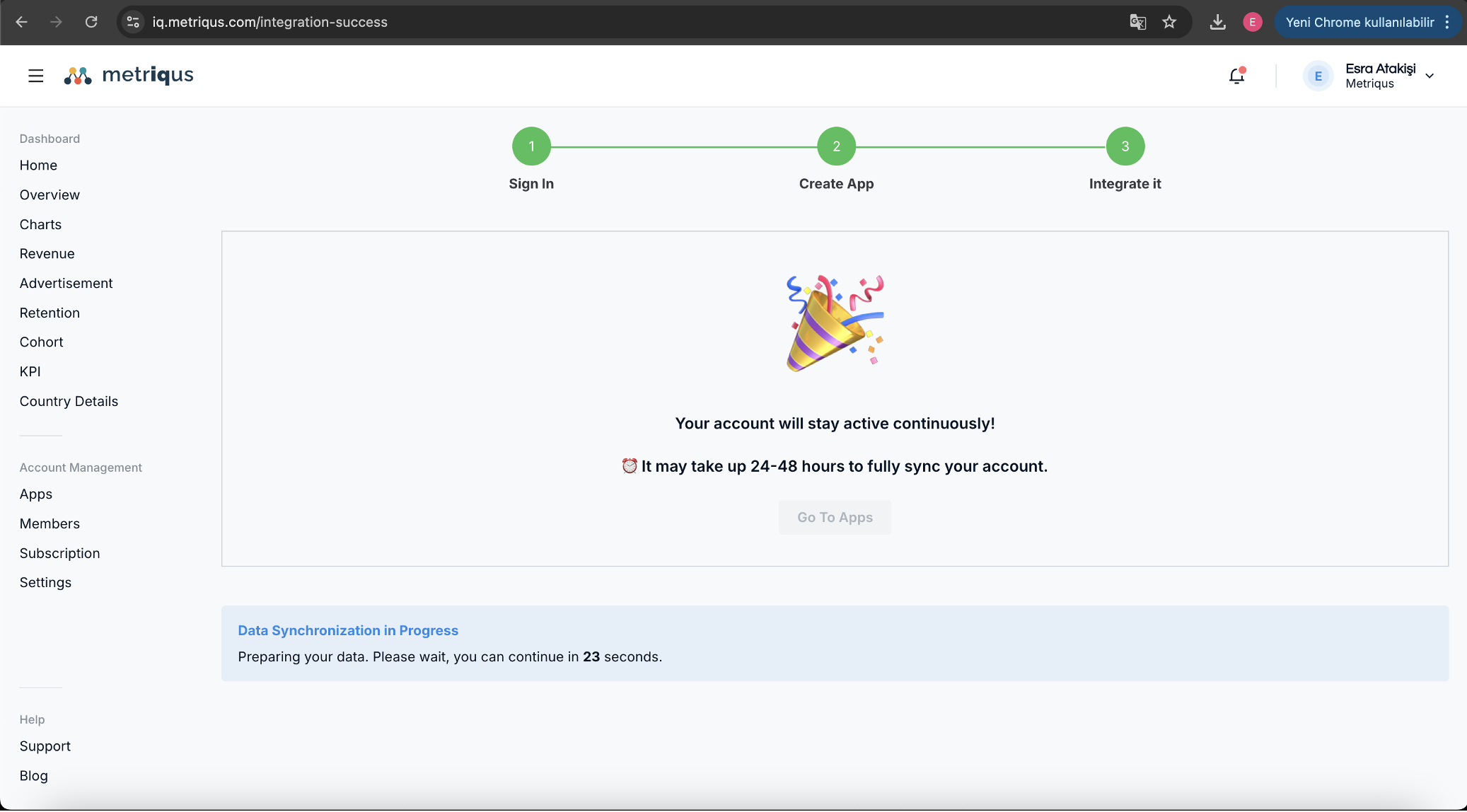
TikTok Ads Integration
Connect your TikTok Ads account with Metriqus to track campaign performance and ad spend in one centralized dashboard.
1. Select Your App
From the “Apps” tab in the Metriqus platform, select the app you want to integrate with a channel/platform, then click the relevant section for TikTok Ads integration.
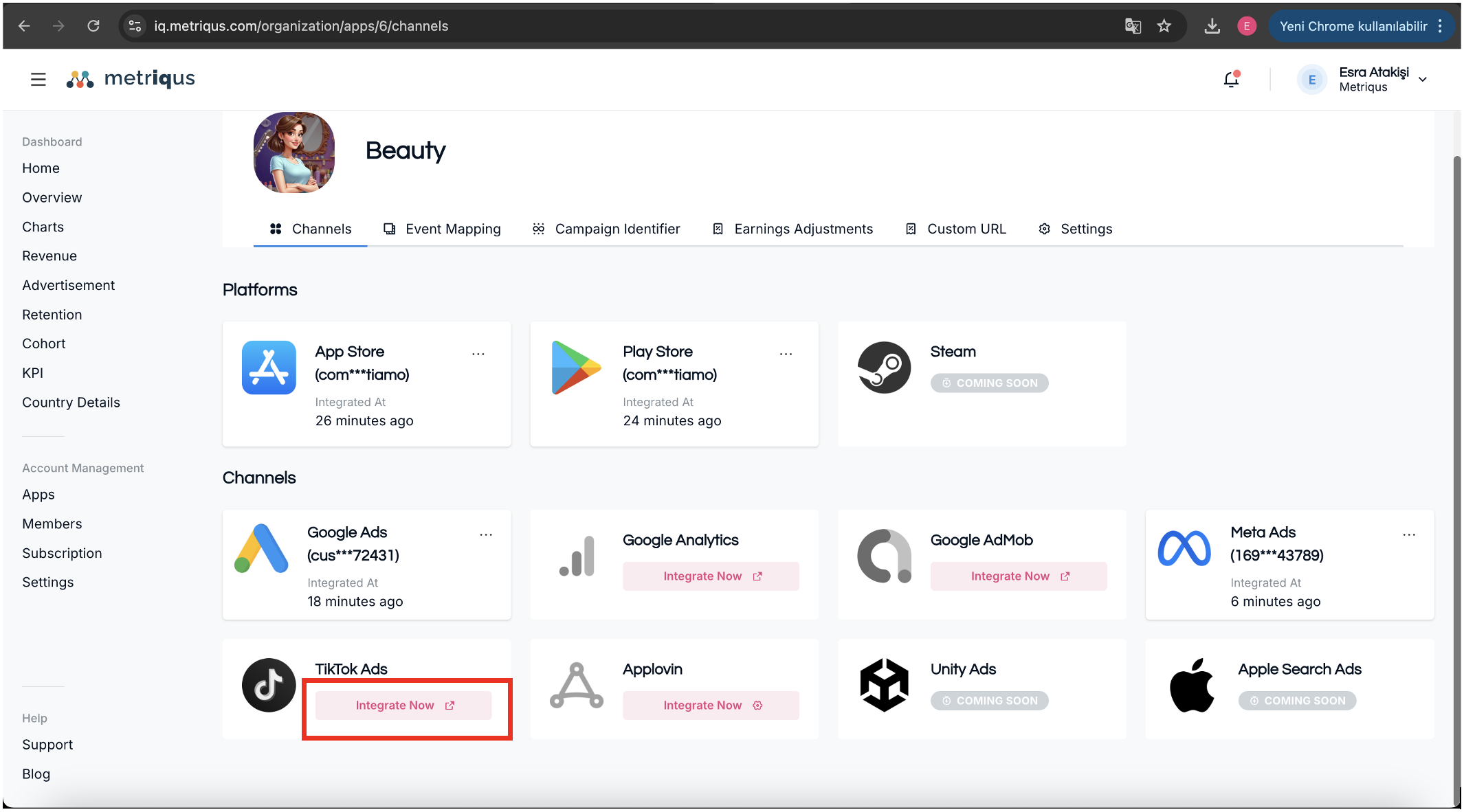
2. Confirm Integration
On the screen that appears, click the “Confirm” button.
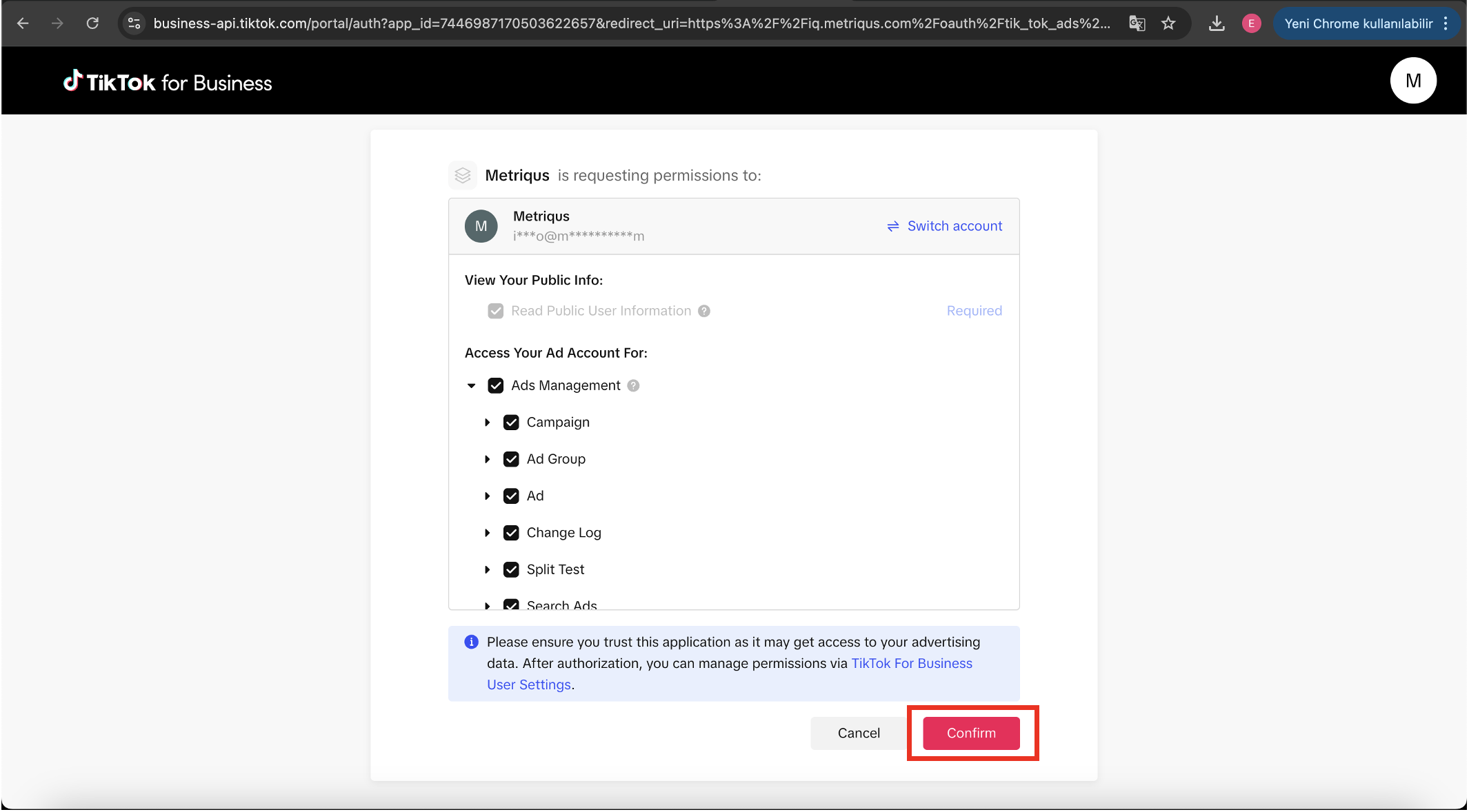
3. Choose TikTok Ads Account
Select the relevant account.
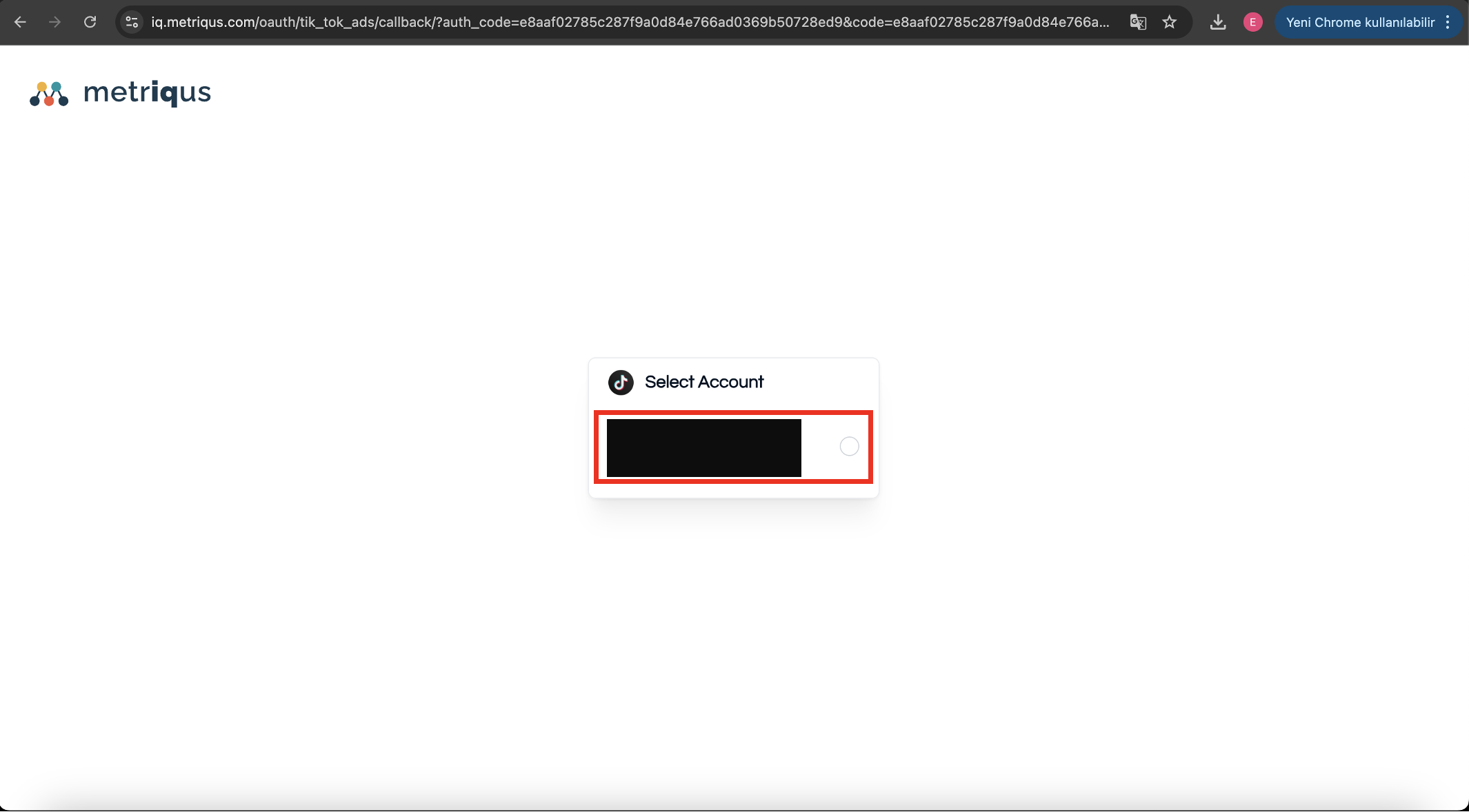
4. Finish
Congratulations, you have successfully completed the TikTok Ads integration! You can click “Go to Apps” button.
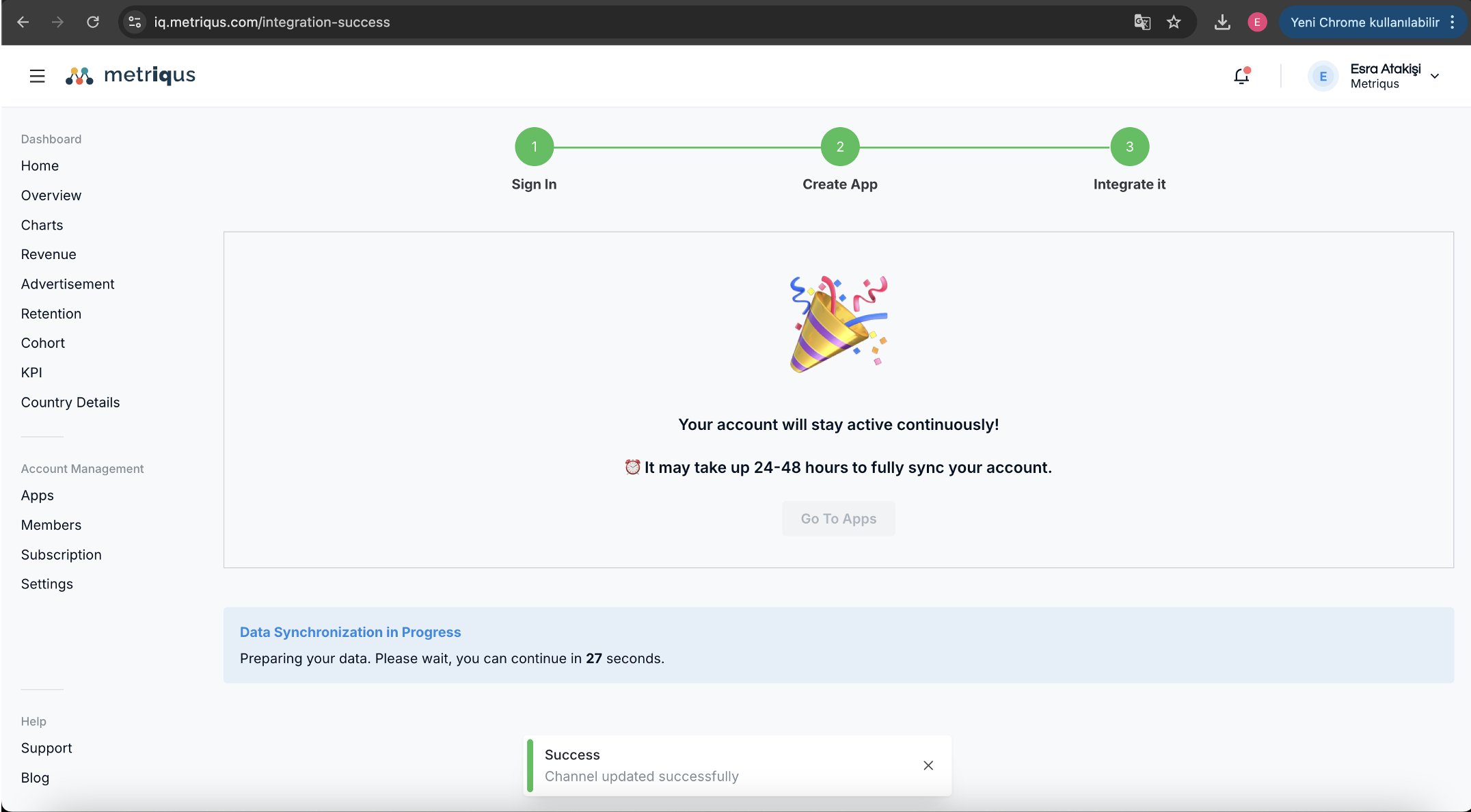
Meta Ads Integration
Easily connect your Meta Ads account with Metriqus to track ad campaigns and performance metrics across platforms.
1. Select Your App
From the “Apps” tab in the Metriqus platform, select the app you want to integrate with a channel/platform, then click the relevant section for Meta Ads integration.
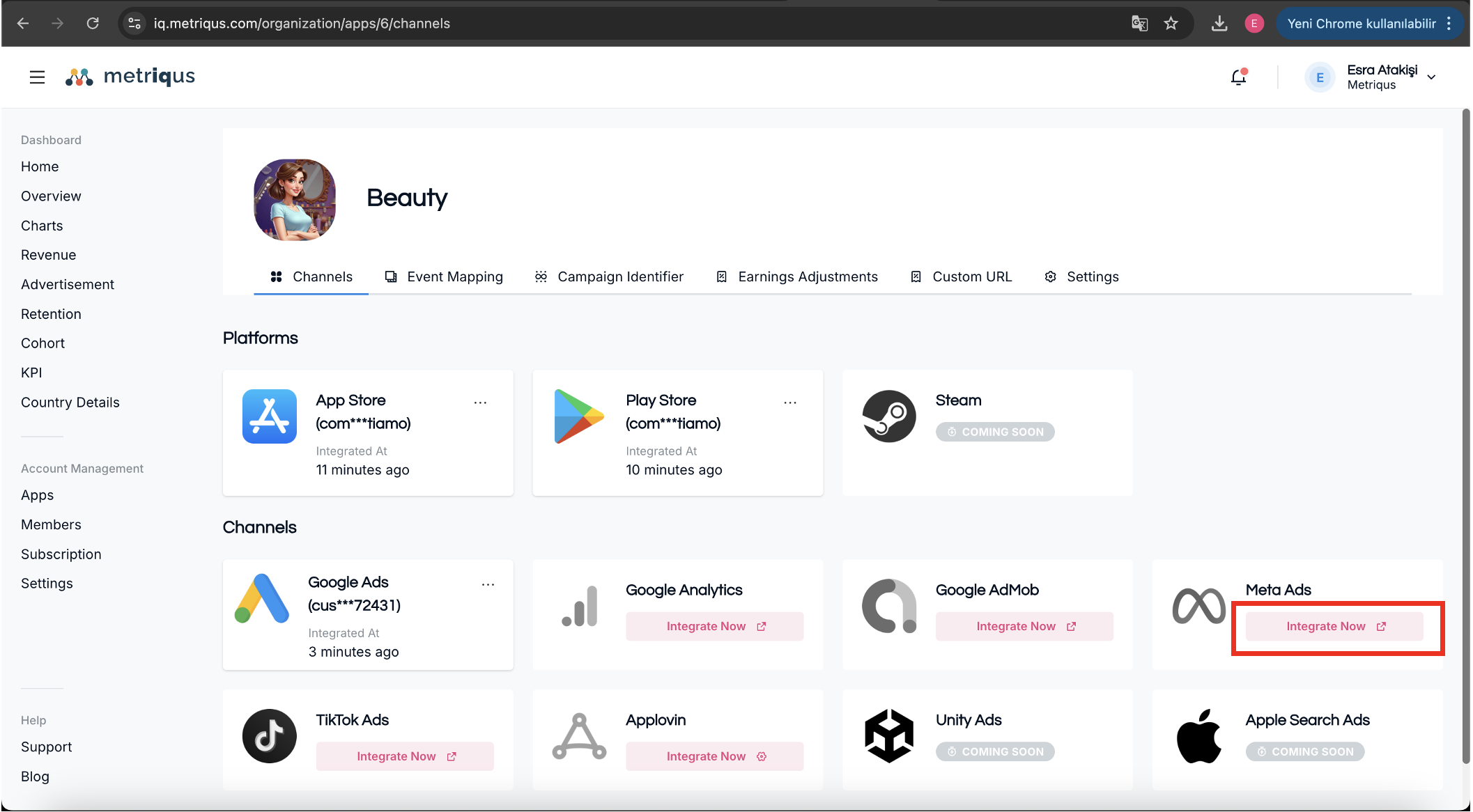
2. Choose Meta Ads Account
Select the account you want to integrate.
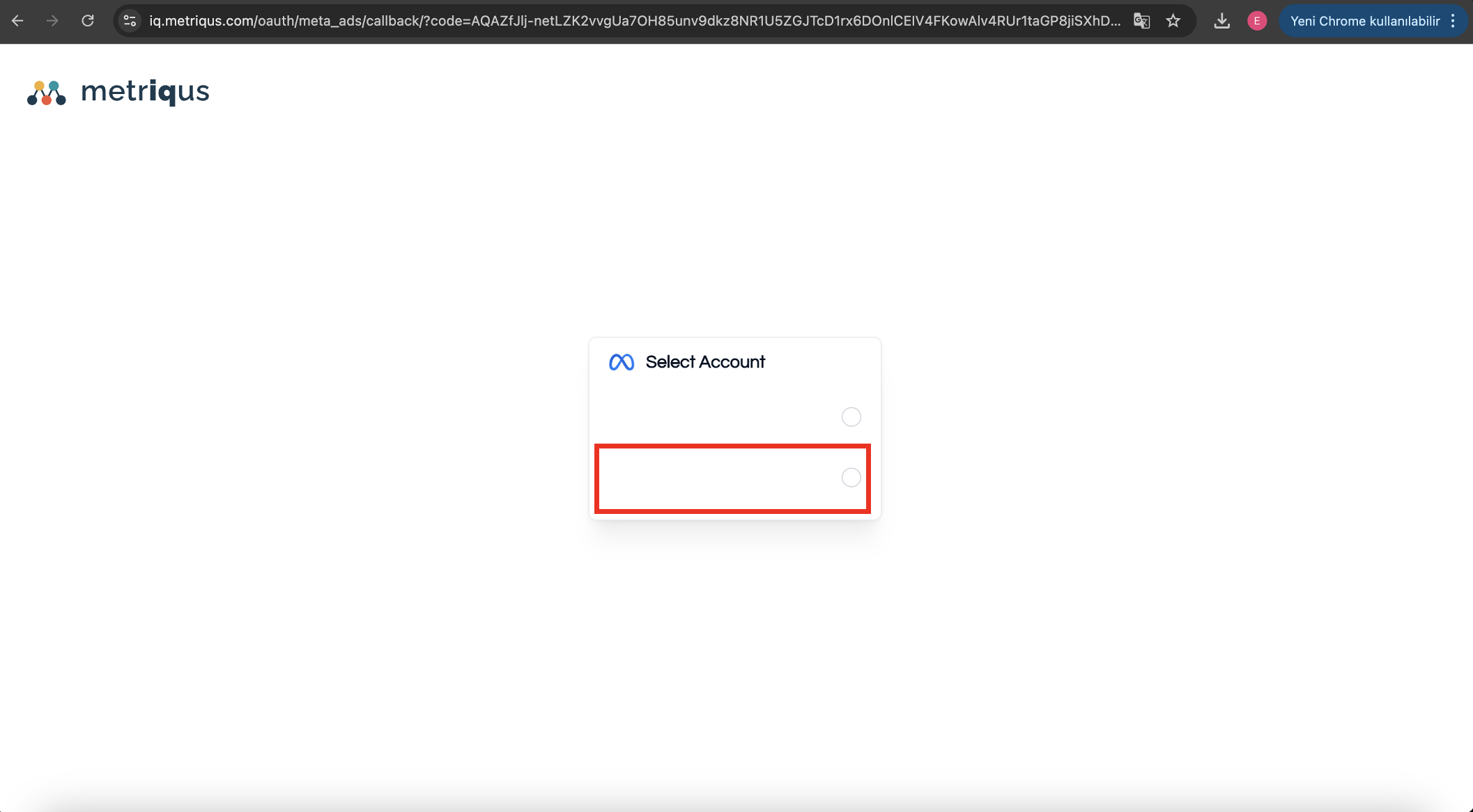
3. Finish
Congratulations, you have successfully completed the Meta Ads integration! You can click “Go to Apps” button.

Integrate Unity SDK
Use the Unity SDK to seamlessly integrate Metriqus analytics into your game and start tracking user events, sessions, and in-app revenue.
1. Compatibility
- iOS 12 or later
- Android API level 21 (Lollipop) or later
- Unity Editor 2019 or later
2. Installation
Option 1: Unity Package
- Download the SDK from GitHub releases.
- In Unity Editor:
Assets → Import Package → Custom Package. - Select and import the downloaded SDK.
Option 2: Unity Package Manager
- Open Unity Package Manager
- Select "Add package from git URL"
- Use:
https://github.com/Metriqus-SDK/unity_sdk.git - Import examples from:
Window → Package Manager → Metriqus Unity SDK → Samples
3. Integration Setup
- Add the
Metriqus.prefabto your first scene from:Assets/Samples/Metriqus Unity SDK/{version}/Samples/Prefabs/Metriqus.prefab - Open the prefab in Inspector to configure settings
- Set the following:
- Client Key: from your Metriqus dashboard
- Client Secret: from your Metriqus dashboard
- Environment: Sandbox (test) or Production (live)
- Log Level: optional debugging logs
- To initialize manually, use:
Metriqus.InitSdk(metriqusSettings);
4. Tracking API
Event Tracking Functions
TrackIAPEvent(MetriqusInAppRevenue metriqusEvent)
Tracks in-app purchase (IAP) events.TrackCustomEvent(MetriqusCustomEvent _event)
Tracks custom events with user-defined parameters.TrackPerformance(int fps, List<TypedParameter> parameters = null)
Tracks FPS and other performance-related metrics.TrackItemUsed(MetriqusItemUsedEvent _event)
Tracks when an item (currency, equipment, etc.) is used.TrackLevelStarted(MetriqusLevelStartedEvent _event)
Tracks when a level starts.TrackLevelCompleted(MetriqusLevelCompletedEvent _event)
Tracks when a level is completed.TrackCampaignAction(MetriqusCampaignActionEvent _event)
Tracks campaign-related actions such as "Showed", "Clicked", "Closed", or "Purchased".TrackScreenView(string screenName, List<TypedParameter> parameters = null)
Tracks when a user views a specific screen in the app.TrackButtonClick(string buttonName, List<TypedParameter> parameters = null)
Tracks button click events.
Ad Revenue Tracking Functions
TrackApplovinAdRevenue(MetriqusApplovinAdRevenue matriqusAdRevenue)
Tracks ad revenue from Applovin.TrackAdmobAdRevenue(MetriqusAdmobAdRevenue matriqusAdRevenue)
Tracks ad revenue from AdMob.TrackAdRevenue(MetriqusAdRevenue matriqusAdRevenue)
Tracks general ad revenue.
User Attribute Functions
SetUserAttribute(TypedParameter parameter)
Sets a user attribute.GetUserAttributes()
Retrieves all user attributes.RemoveUserAttribute(string key)
Removes a specific user attribute by key.
Device and Geolocation Functions
GetAdid()
Retrieves the Advertising ID (AdID) of the user.GetMetriqusSettings()
Retrieves the Metriqus SDK settings.GetGeolocation()
Retrieves geolocation data.GetDeviceInfo()
Retrieves device information.GetUniqueUserId()
Retrieves the unique user identifier.
SDK State and Tracking Control
IsInitialized()
Checks whether the Metriqus SDK is initialized.IsTrackingEnabled()
Checks whether tracking is enabled.
5. Notes
- The Metriqus SDK is designed exclusively for Unity projects targeting Android and iOS platforms.
- Calling outside those platforms will result in an error log
- Make sure to initialize the SDK before calling any tracking or analytics functions. Initialization ensures that all events are properly attributed and transmitted.